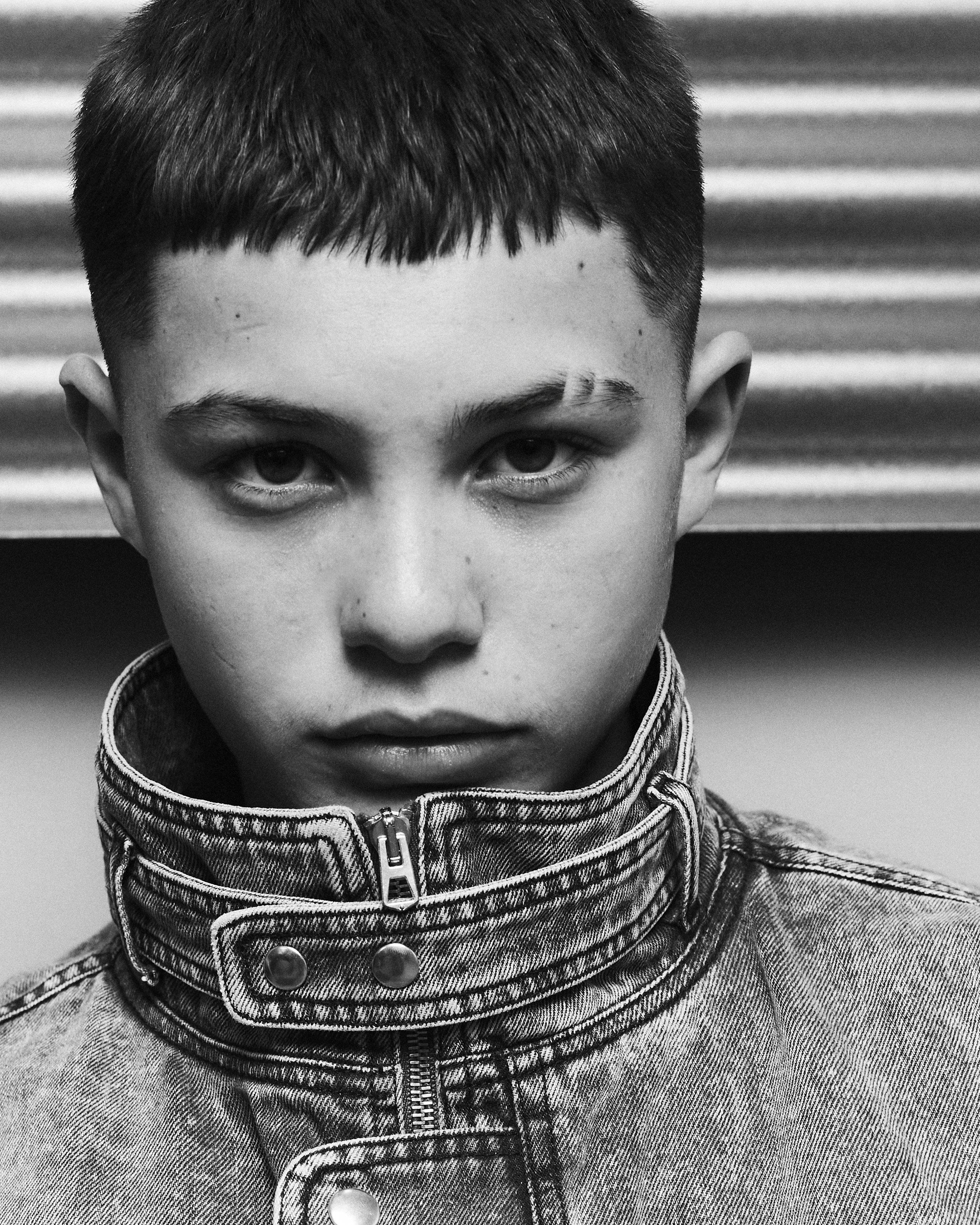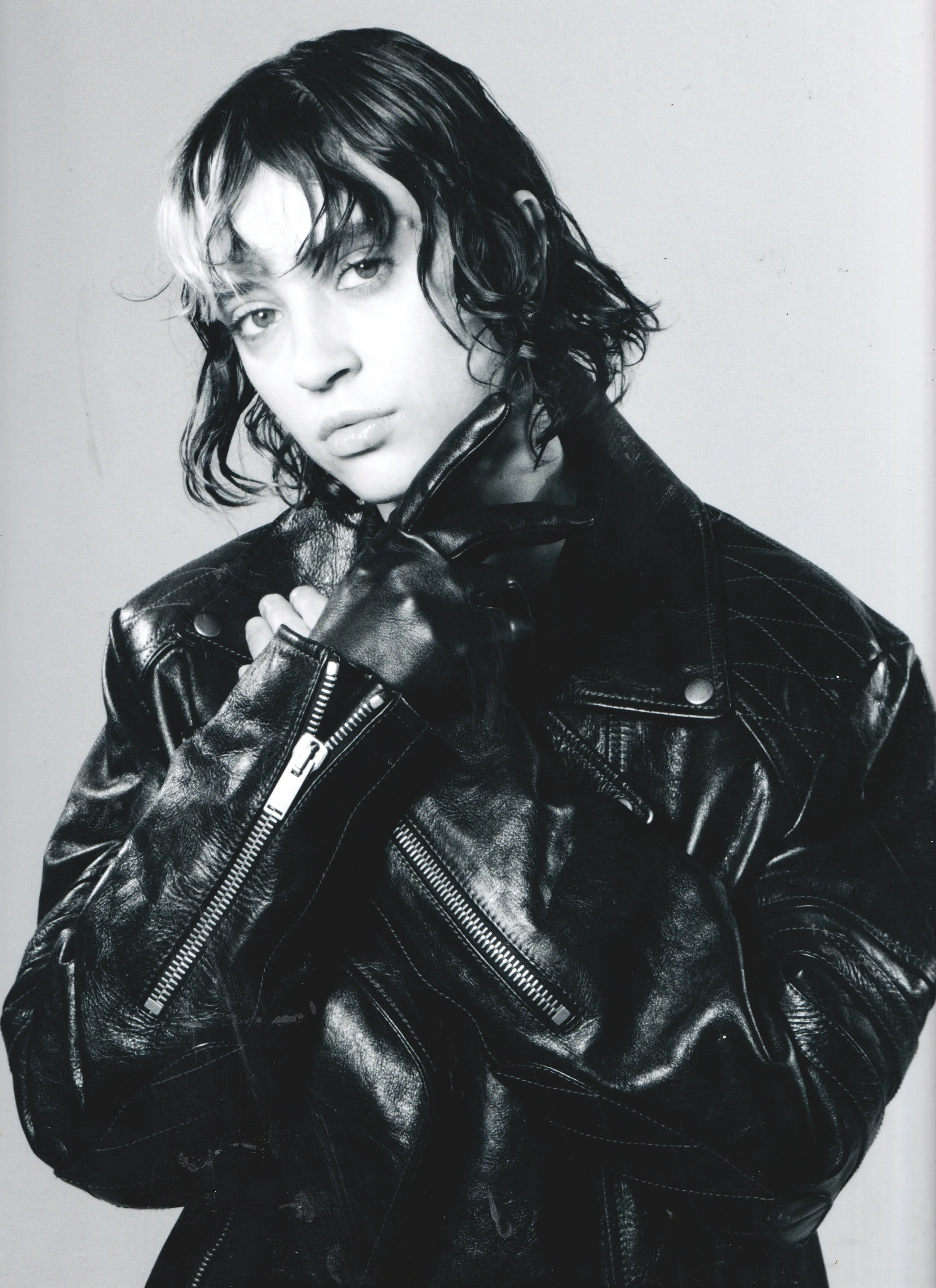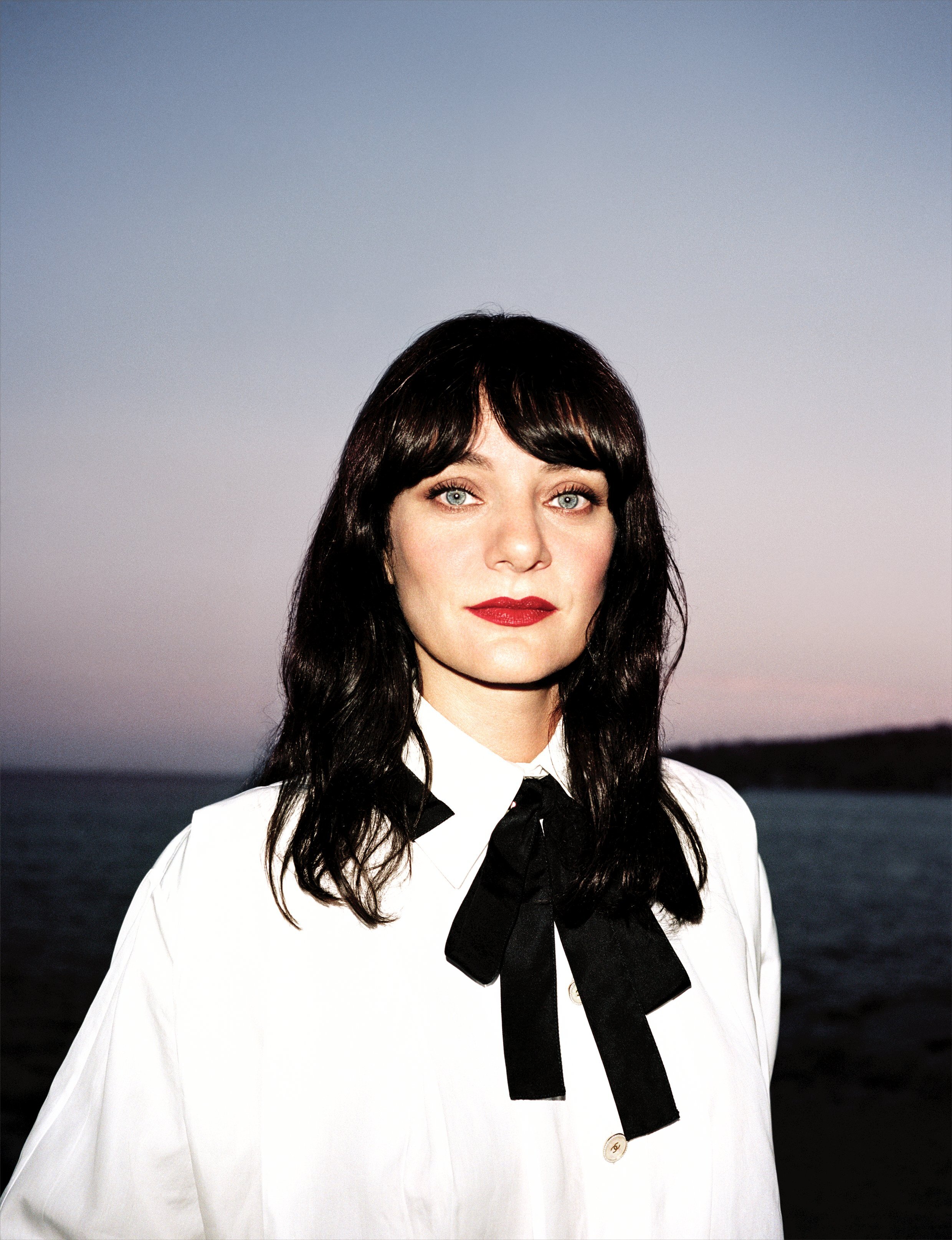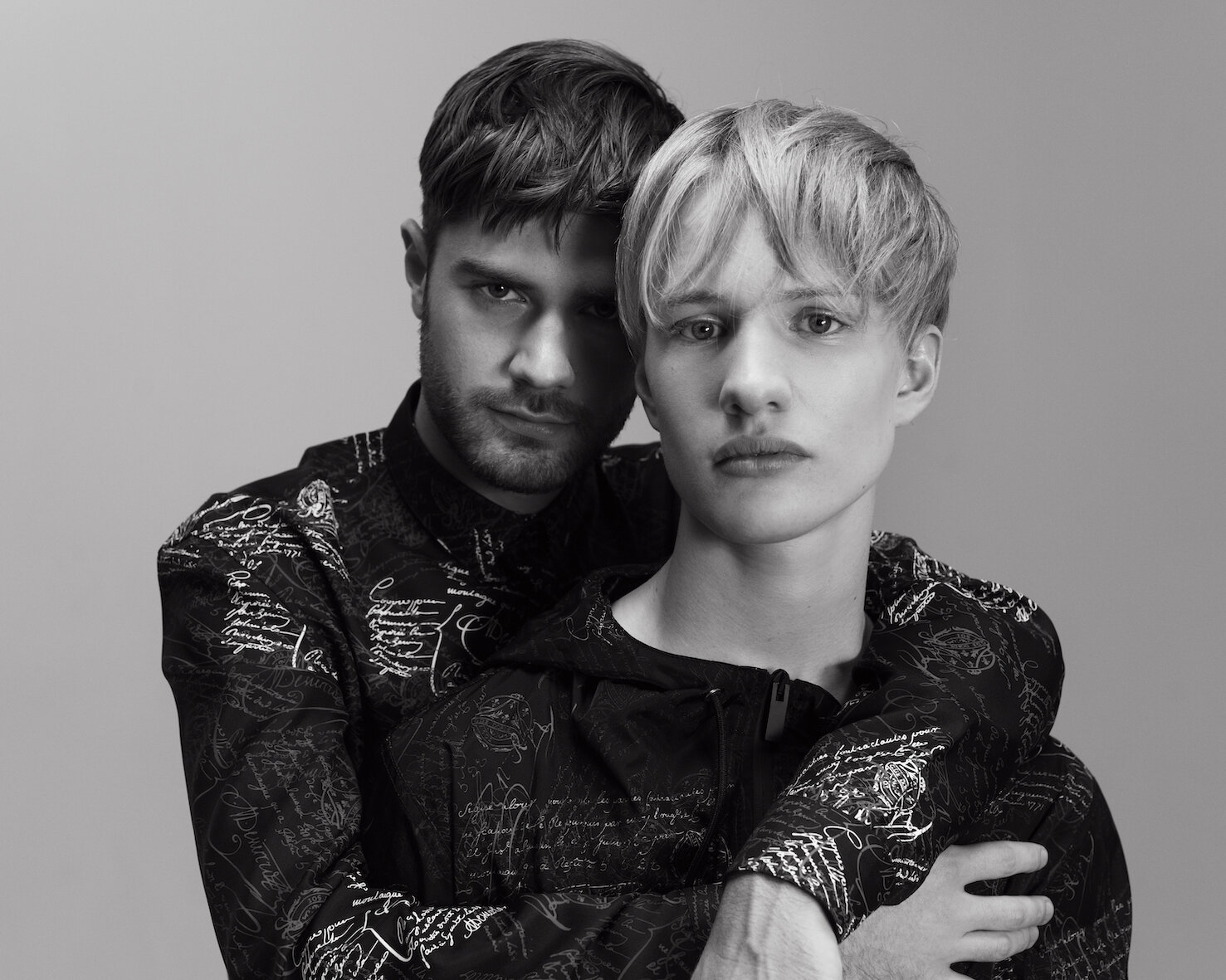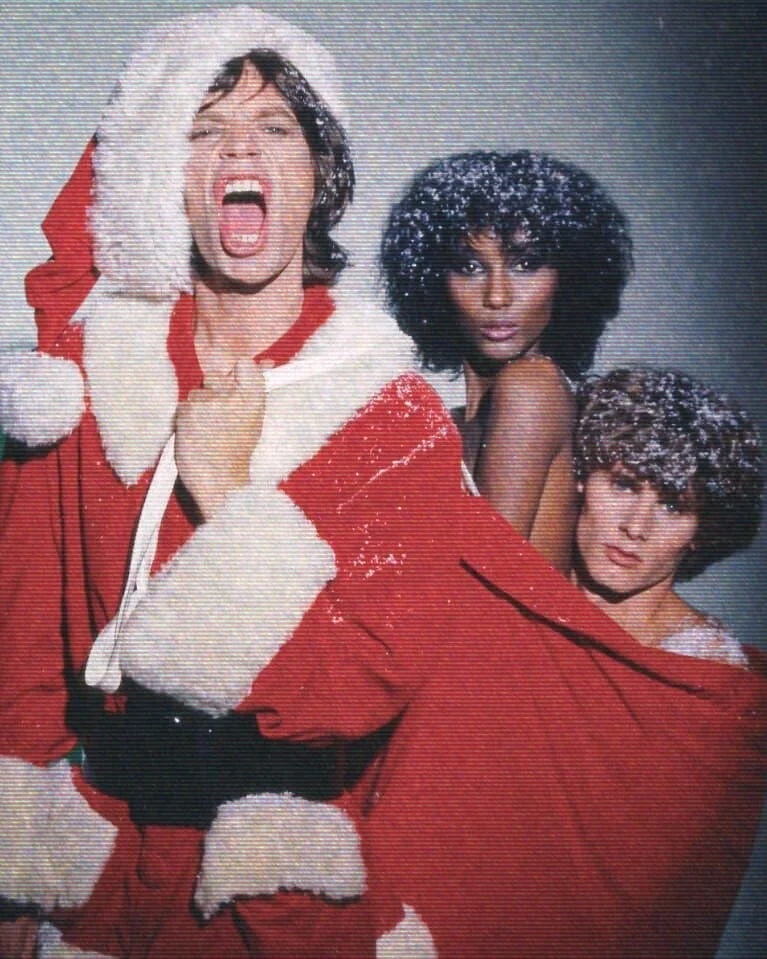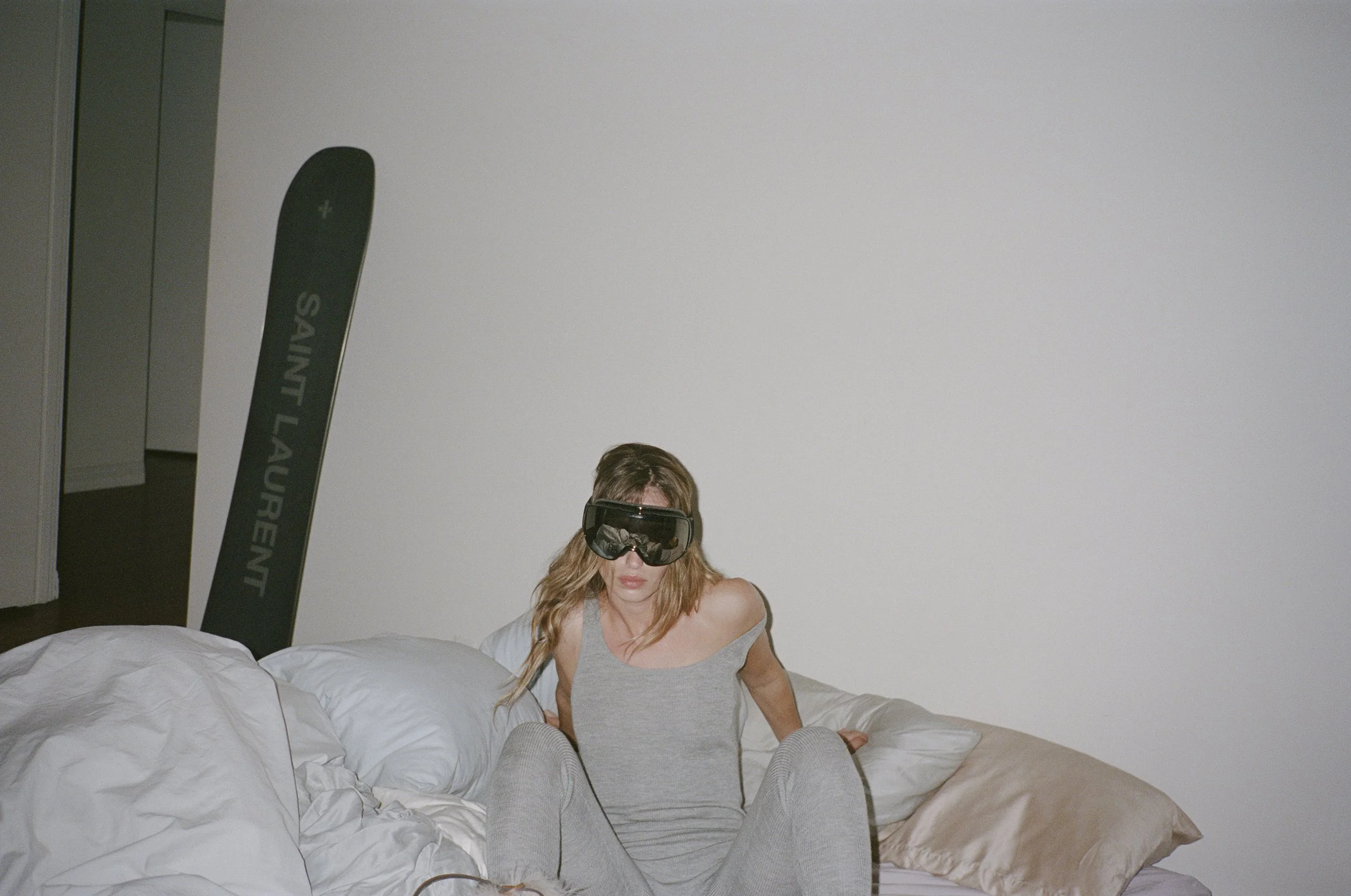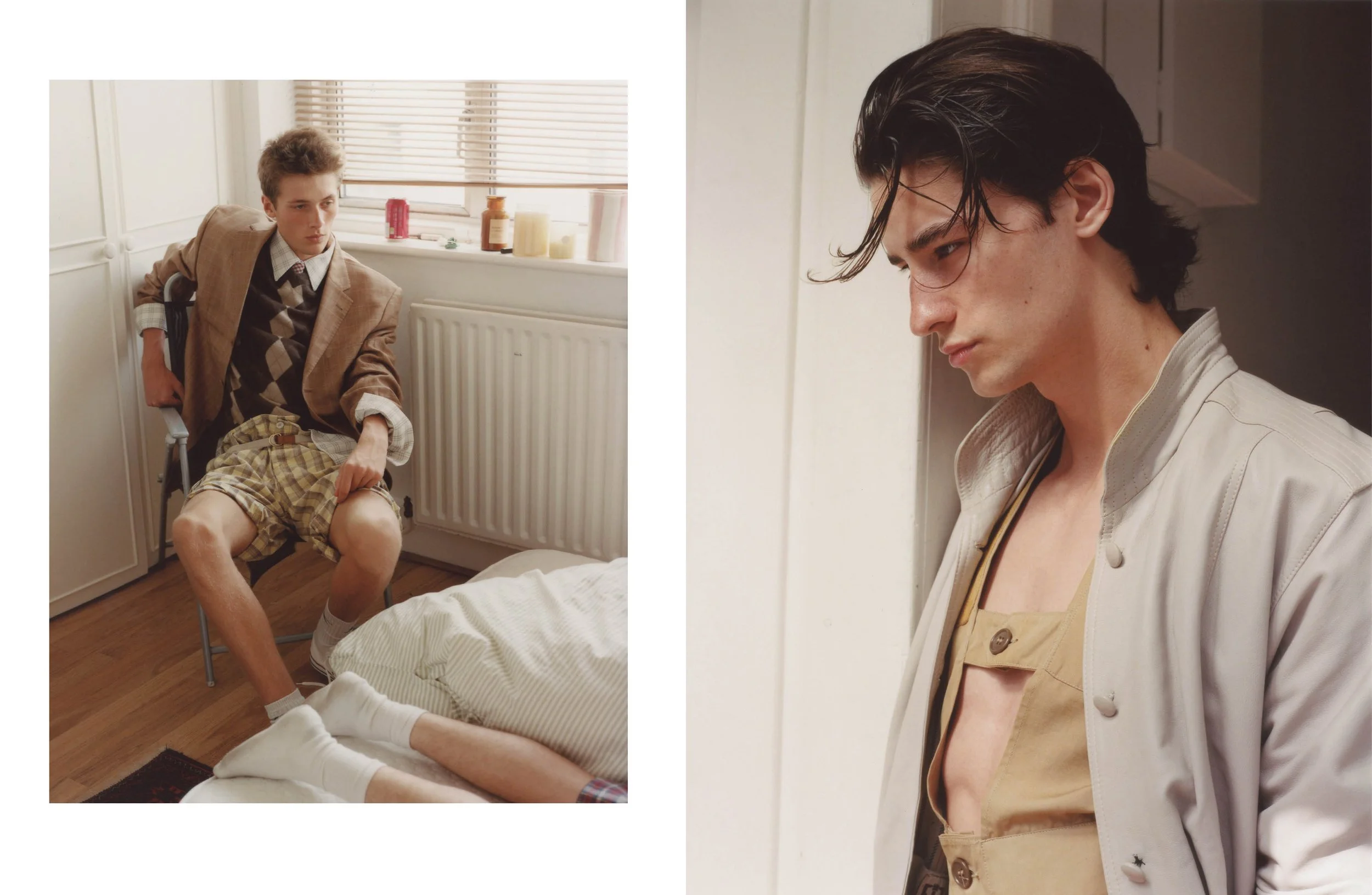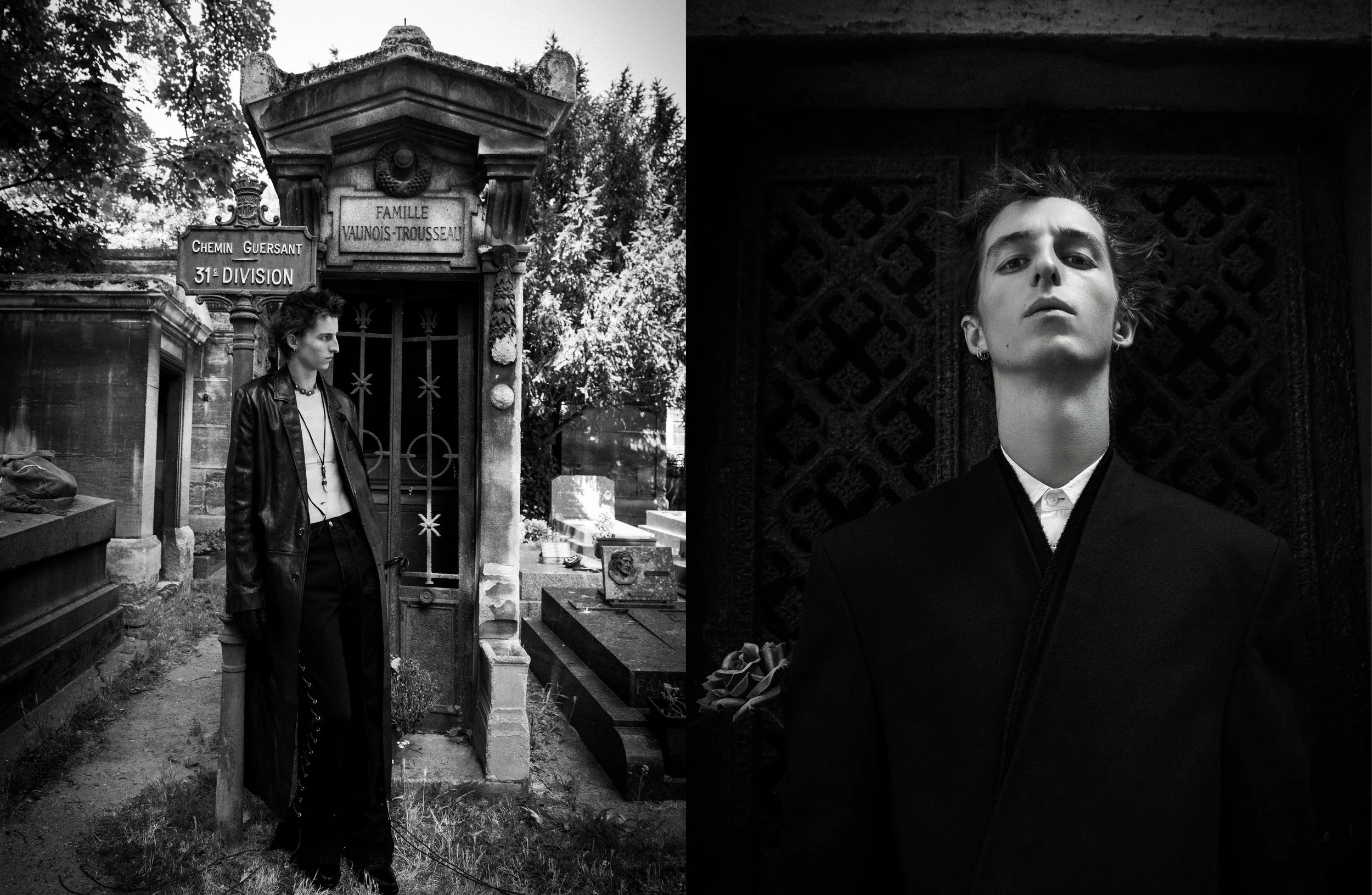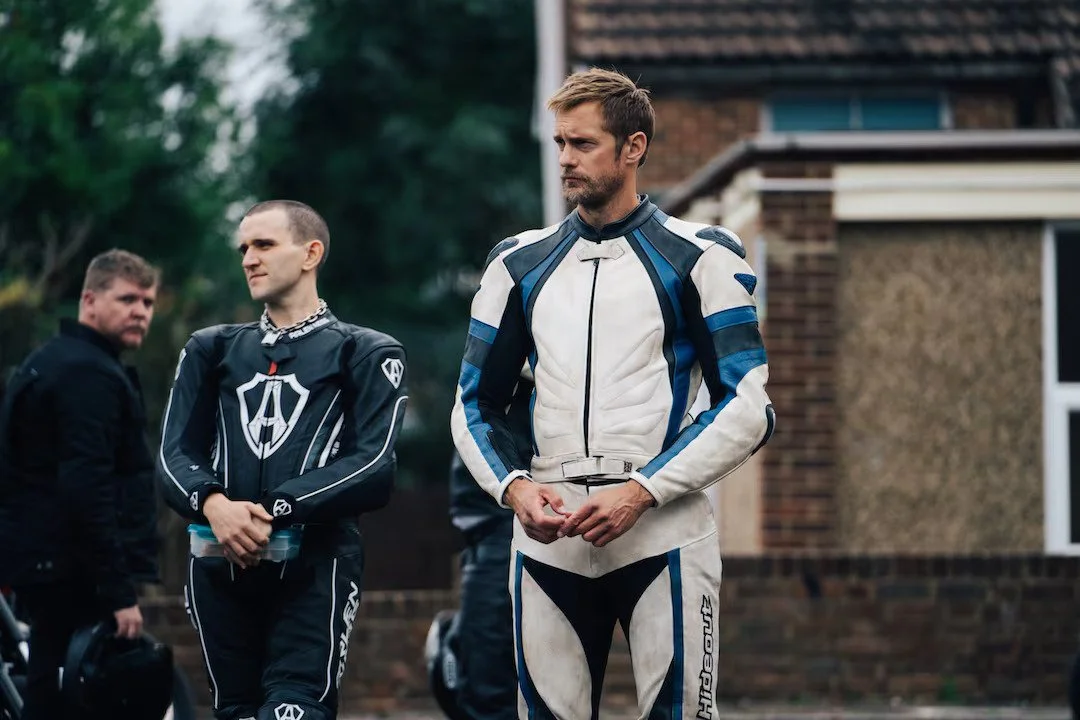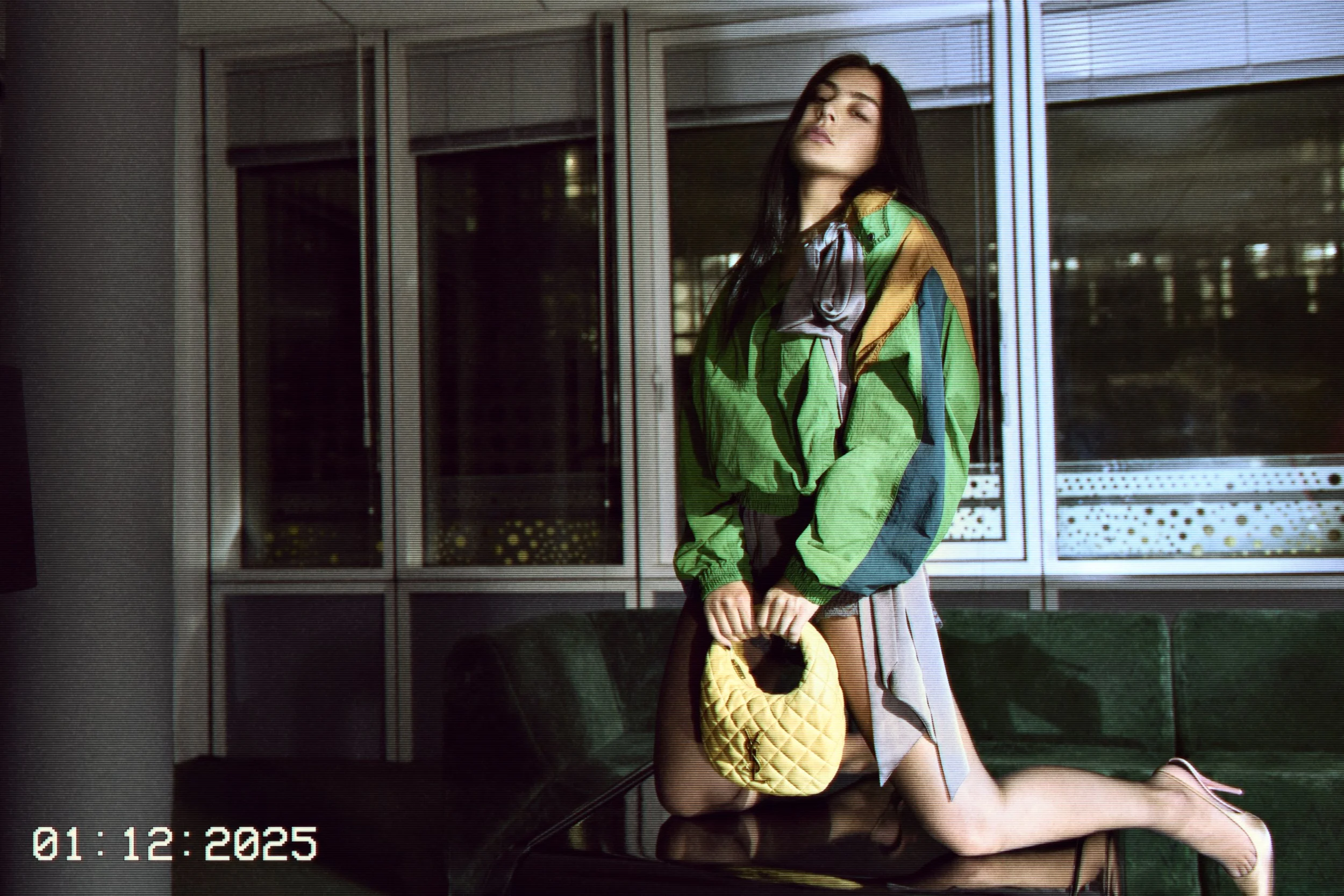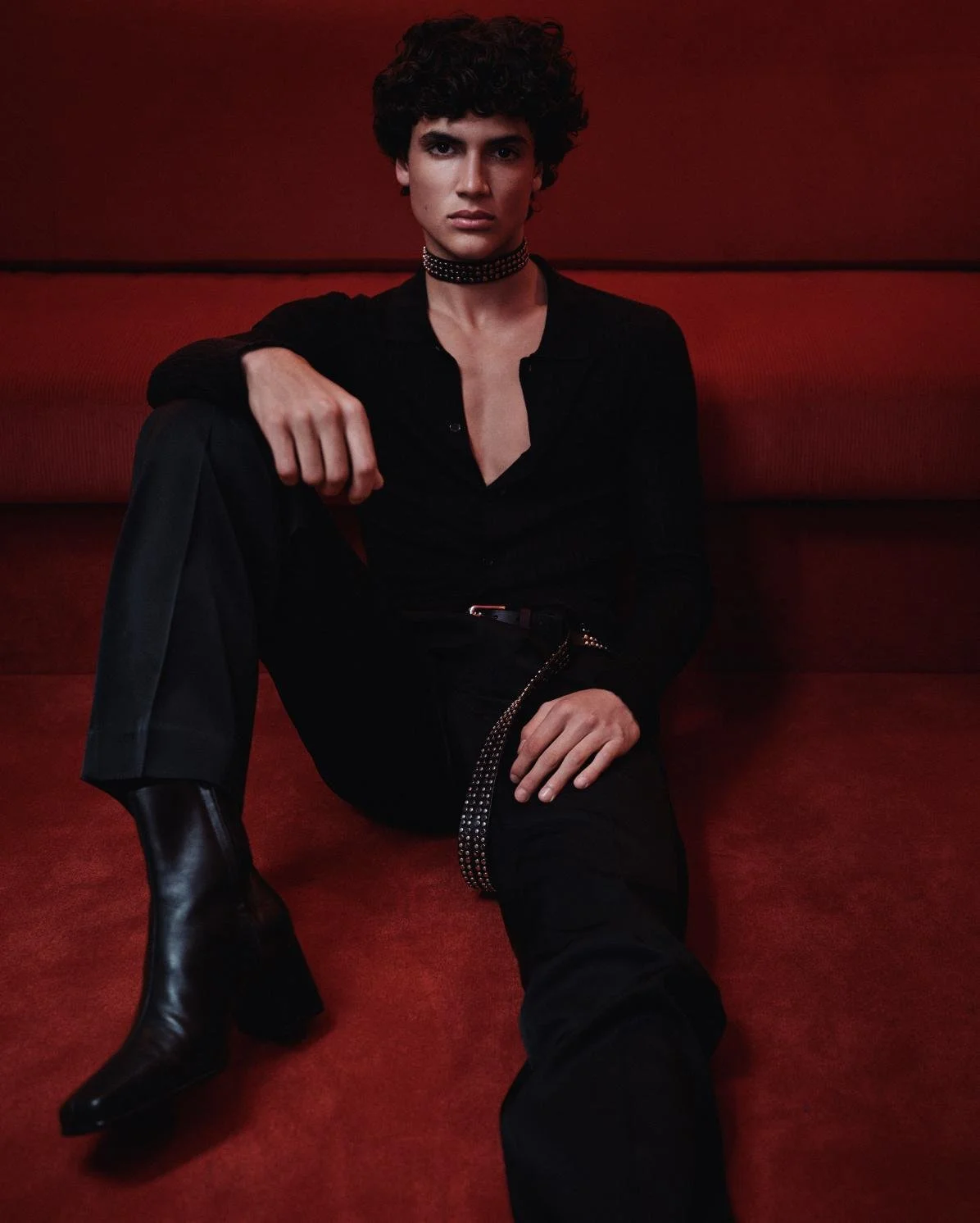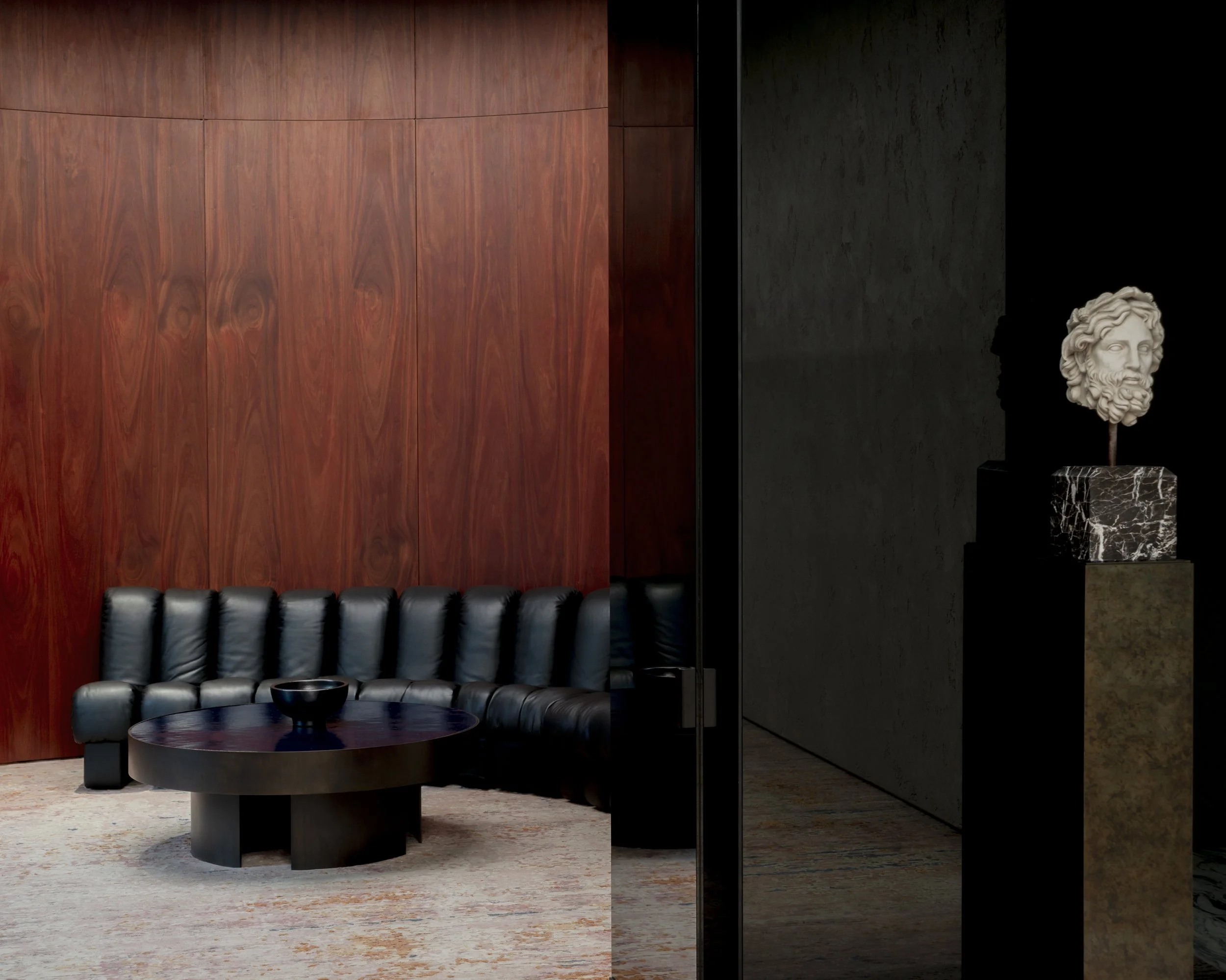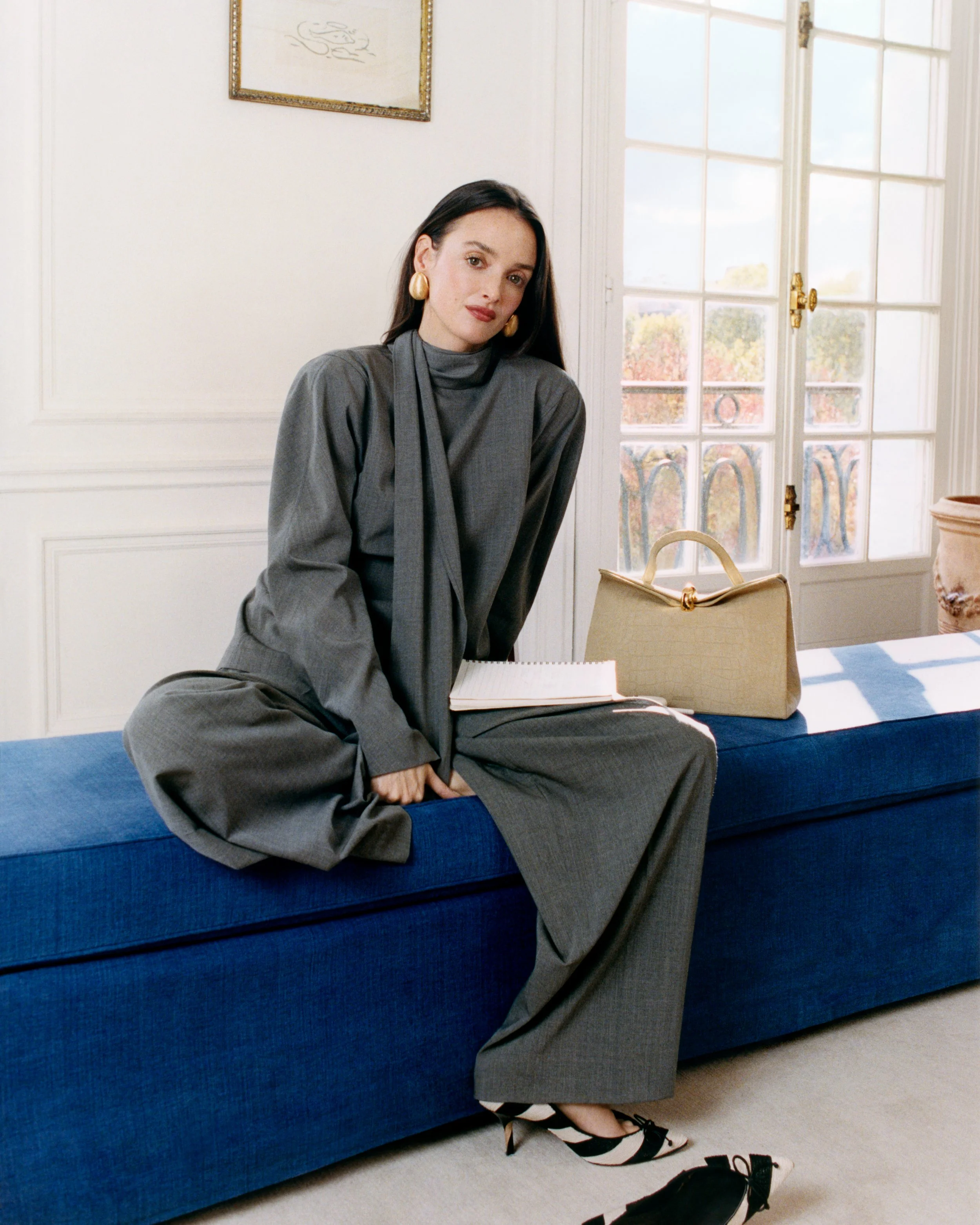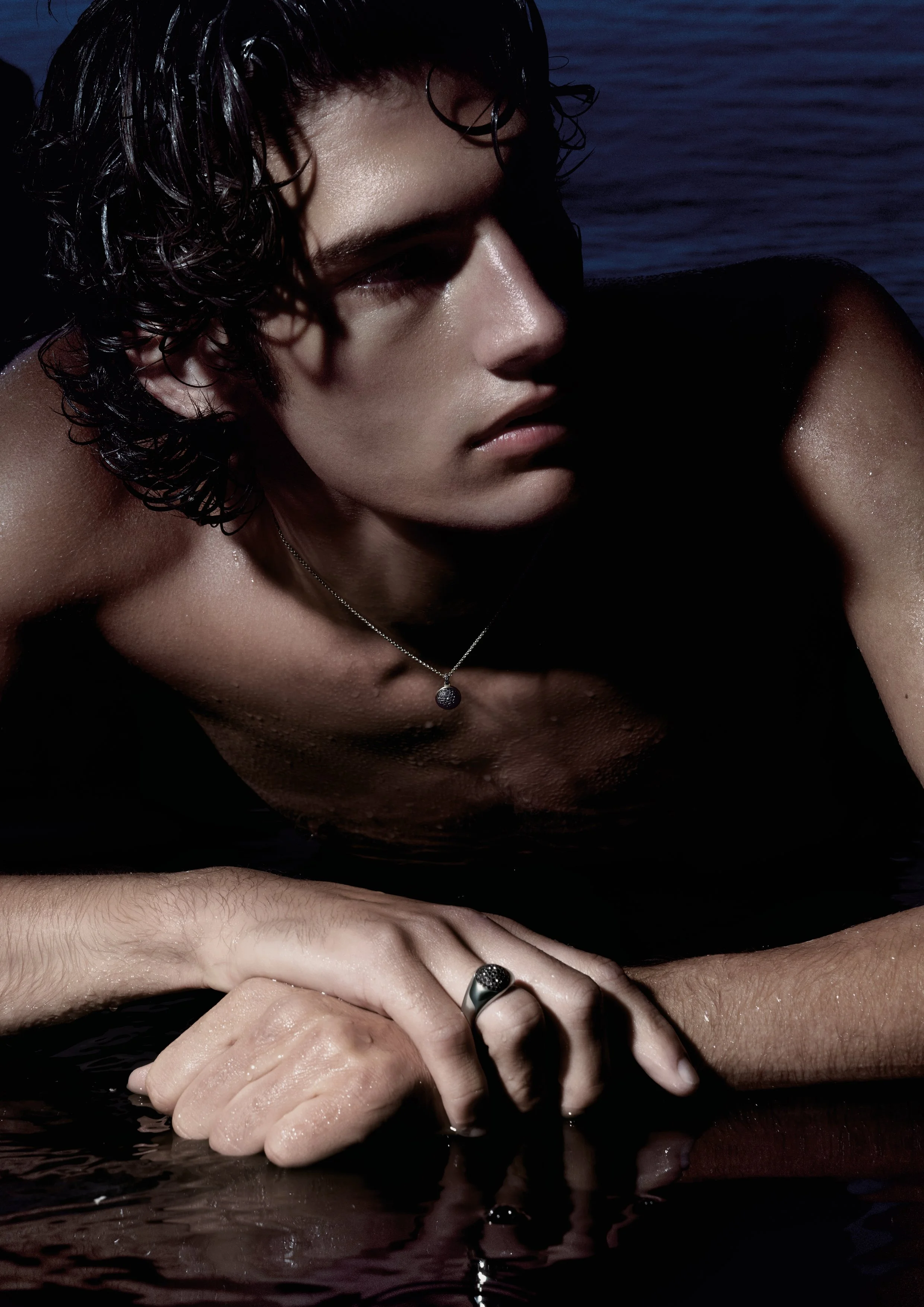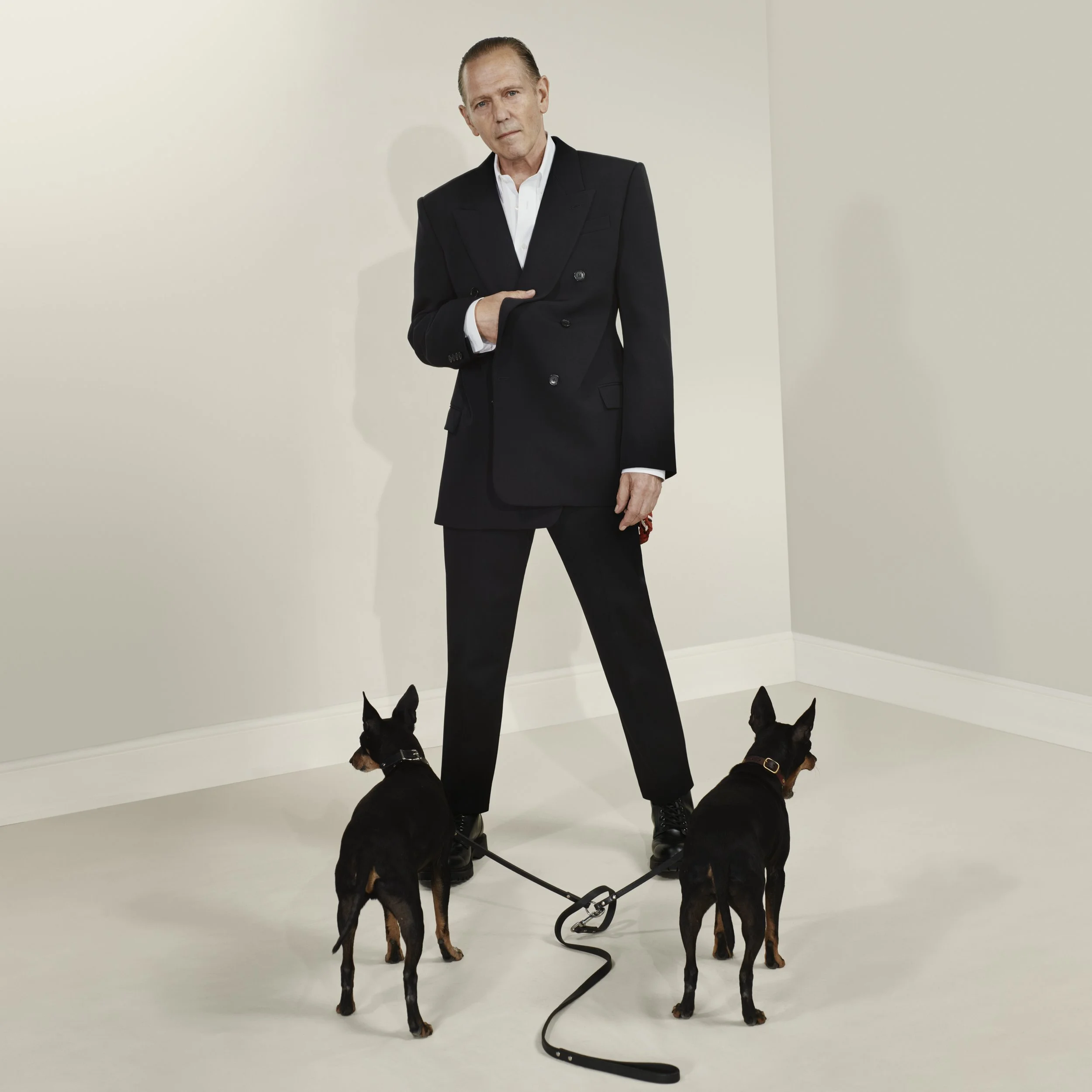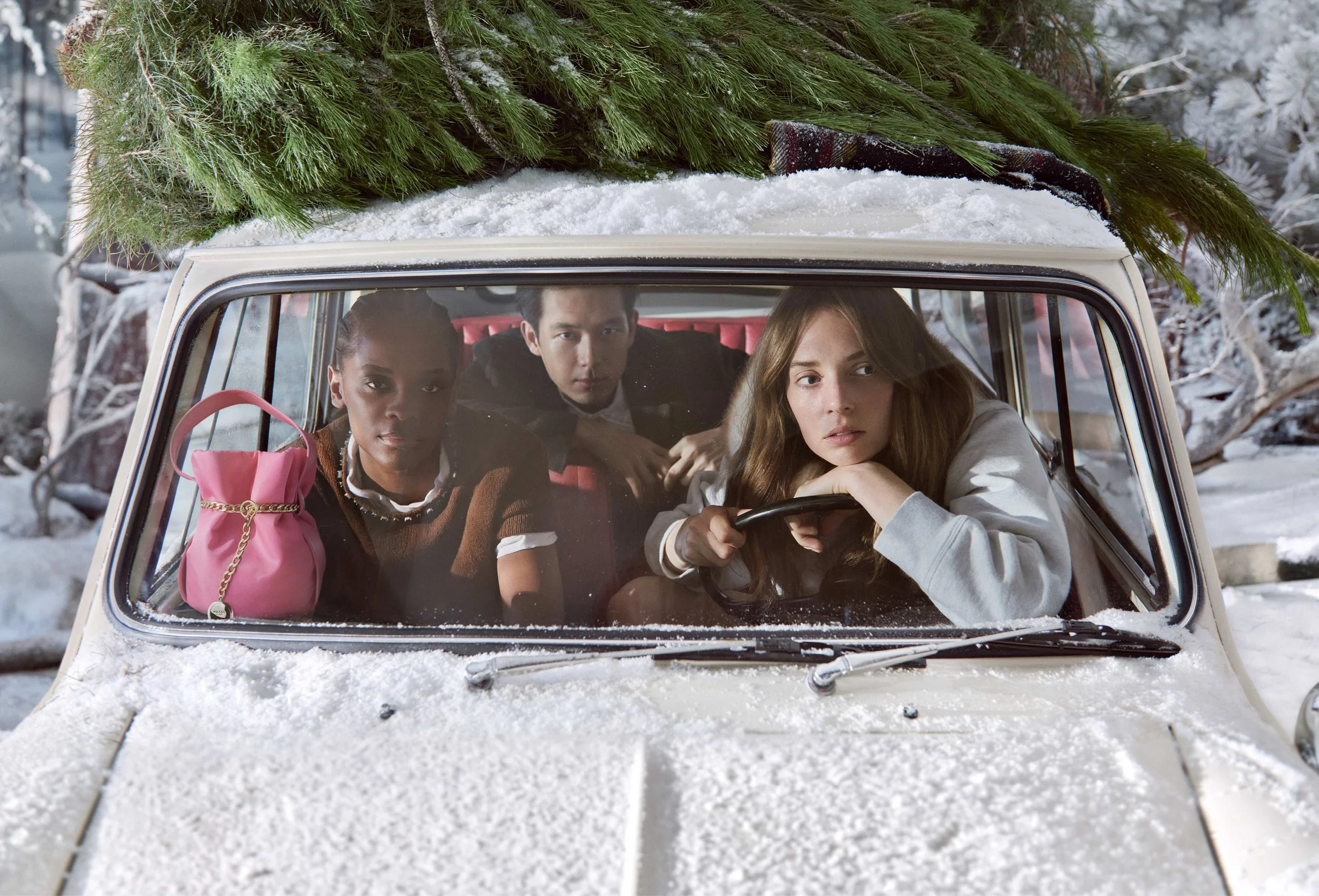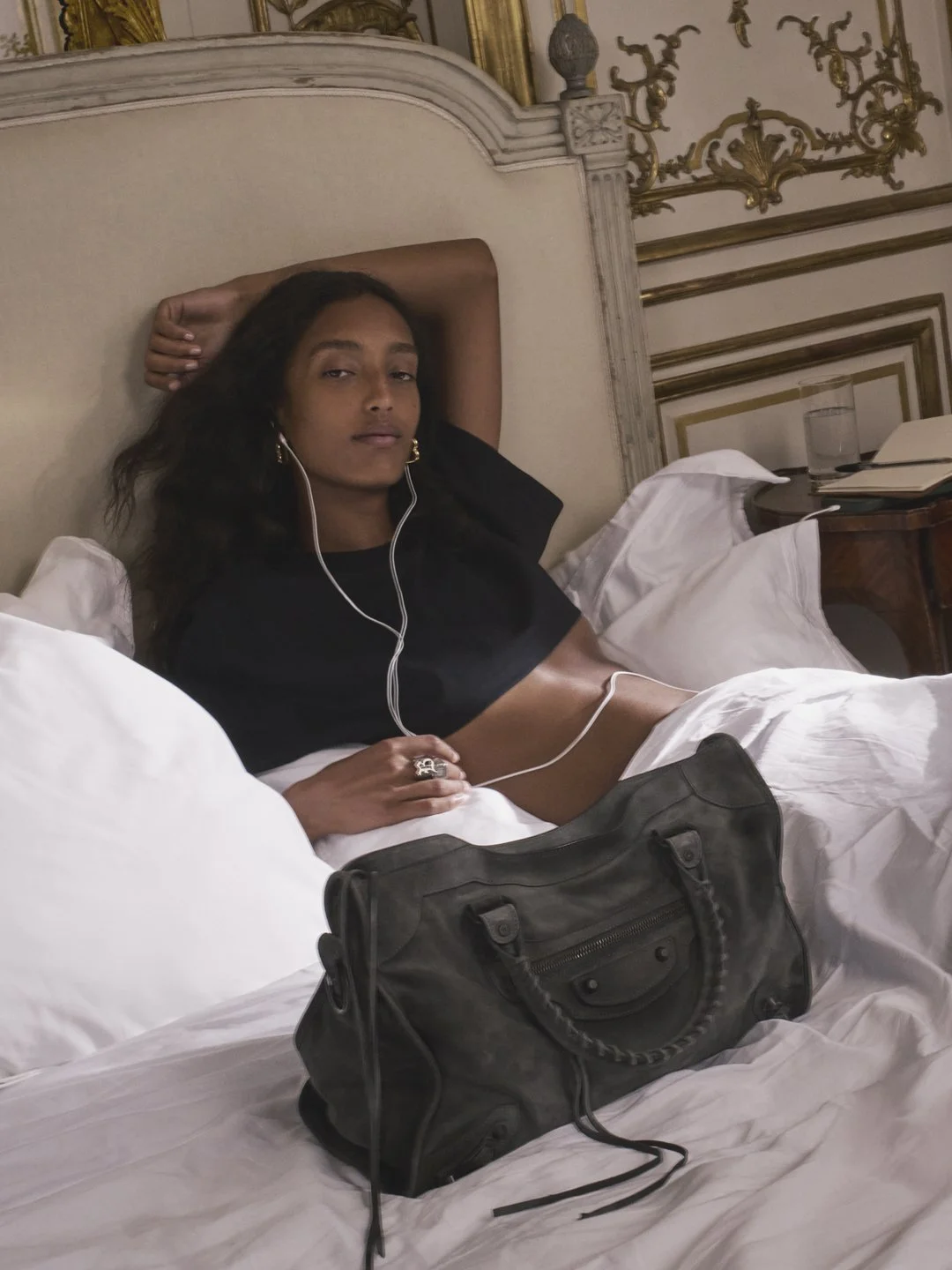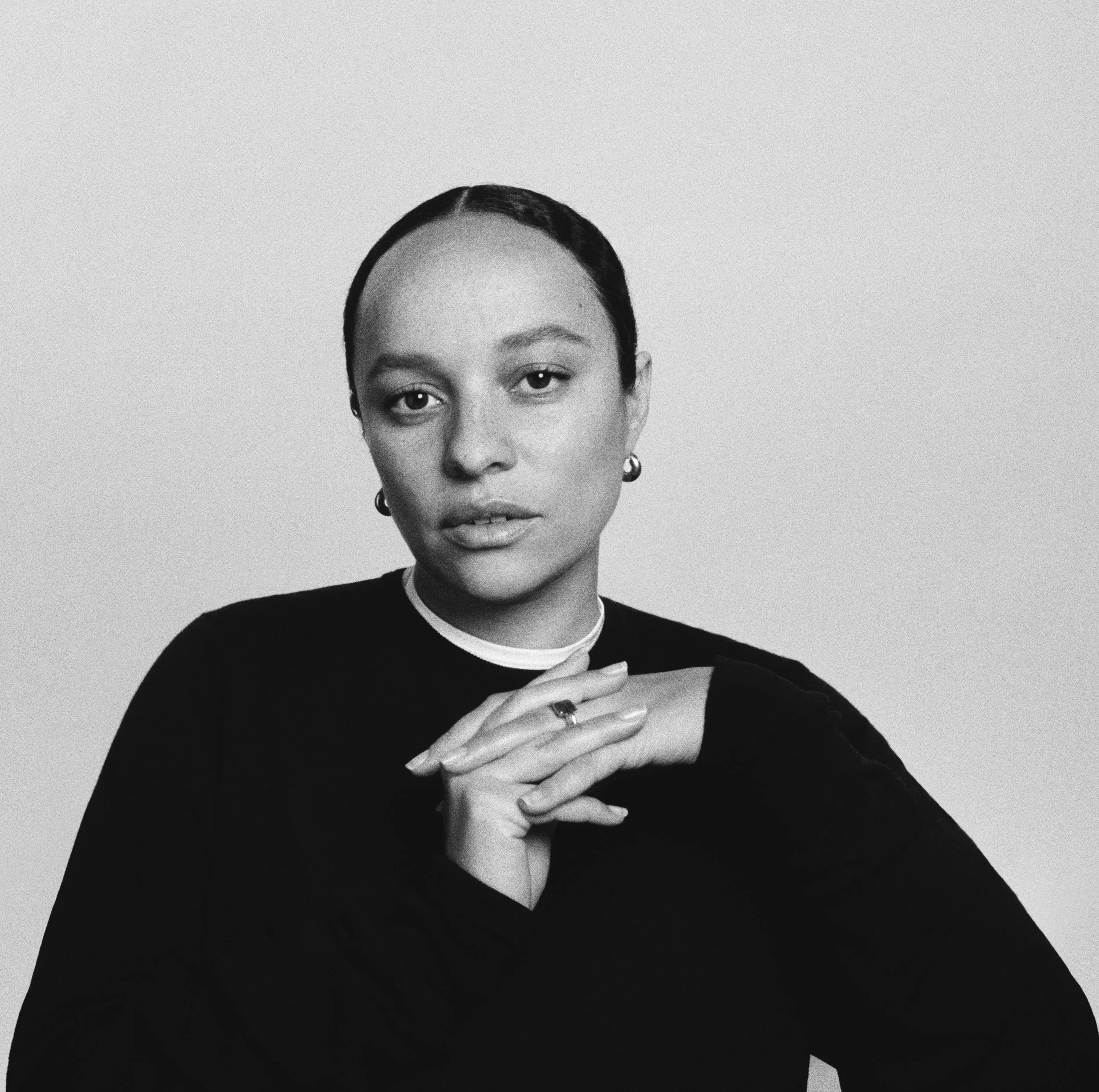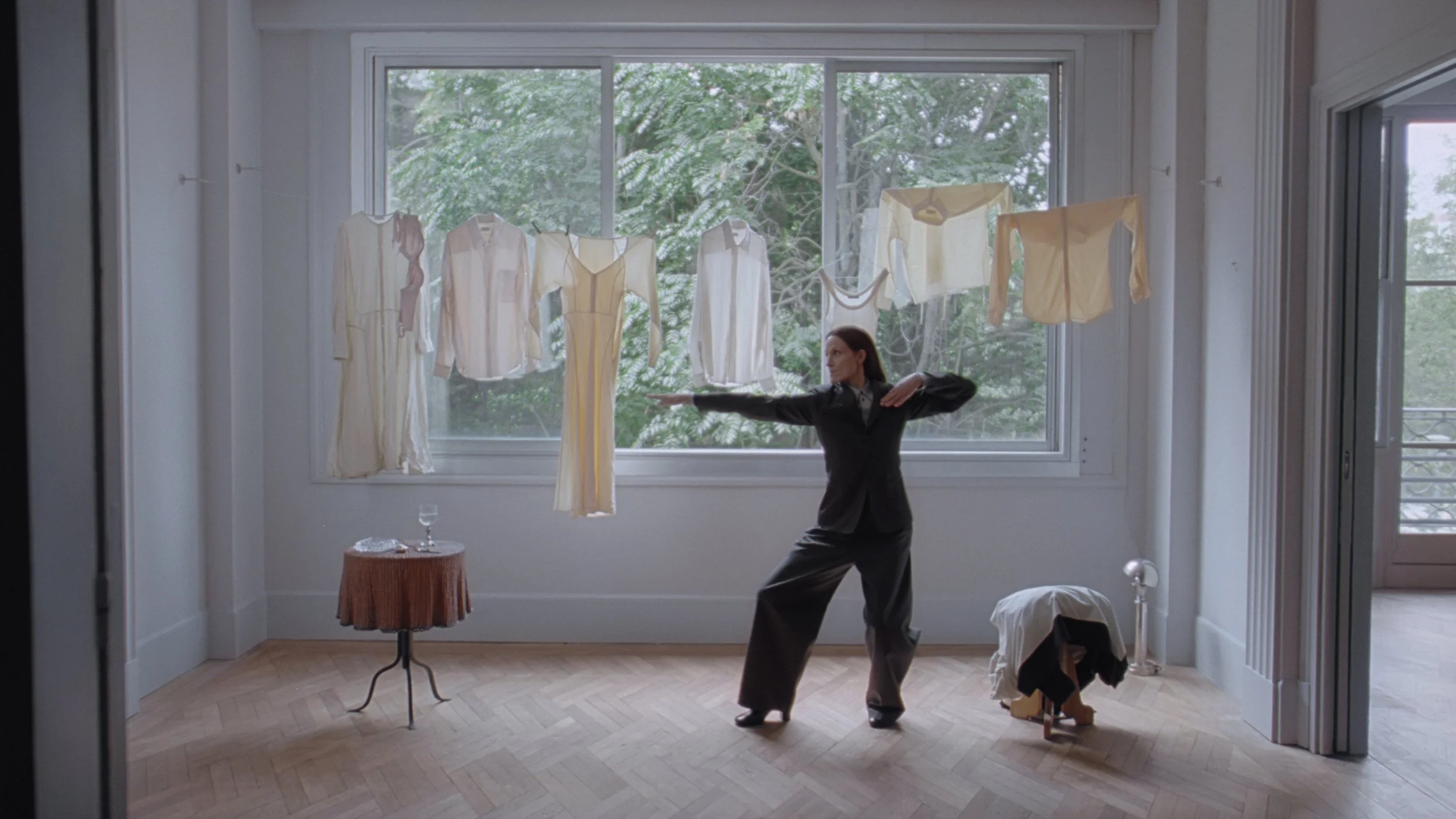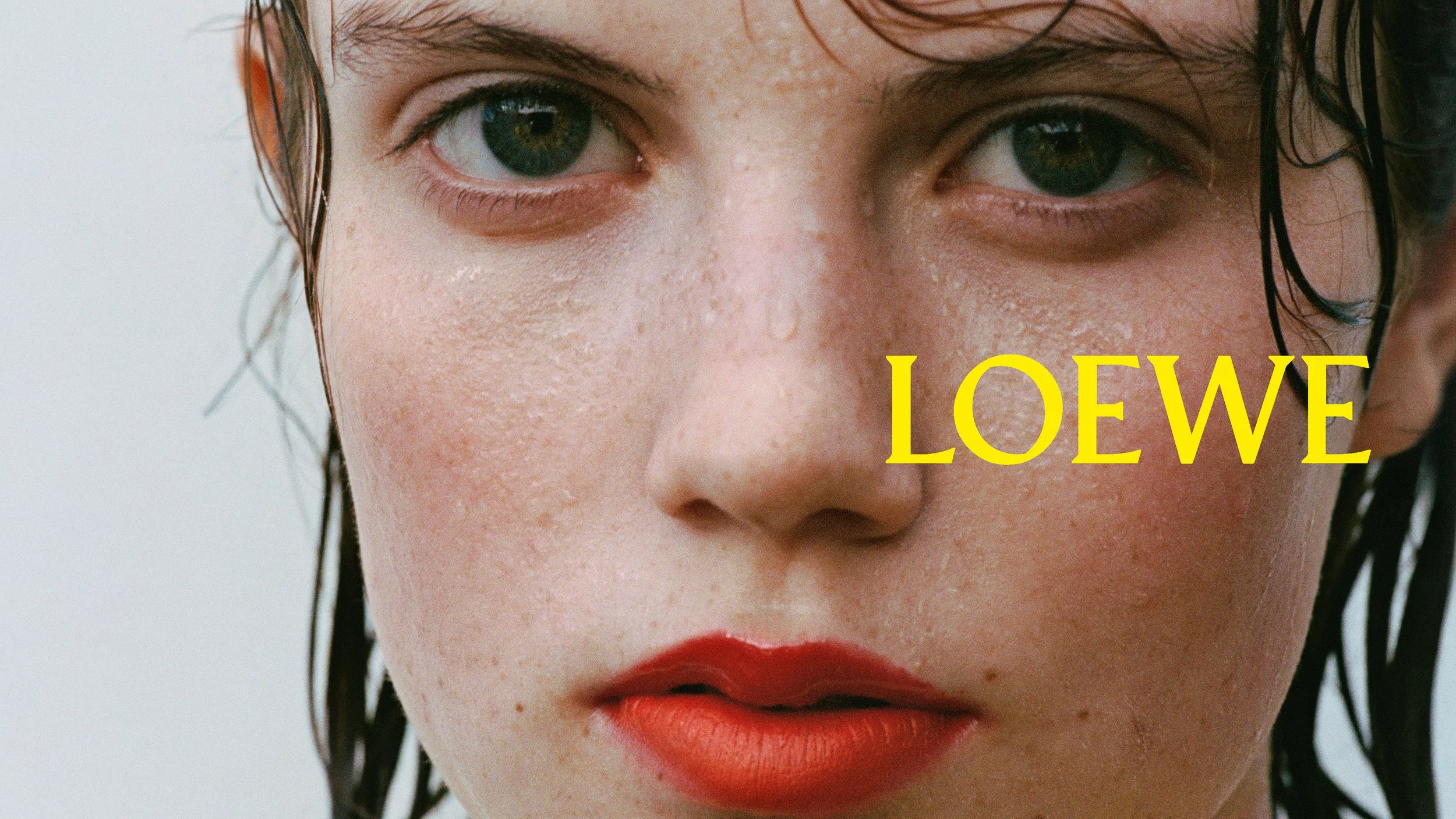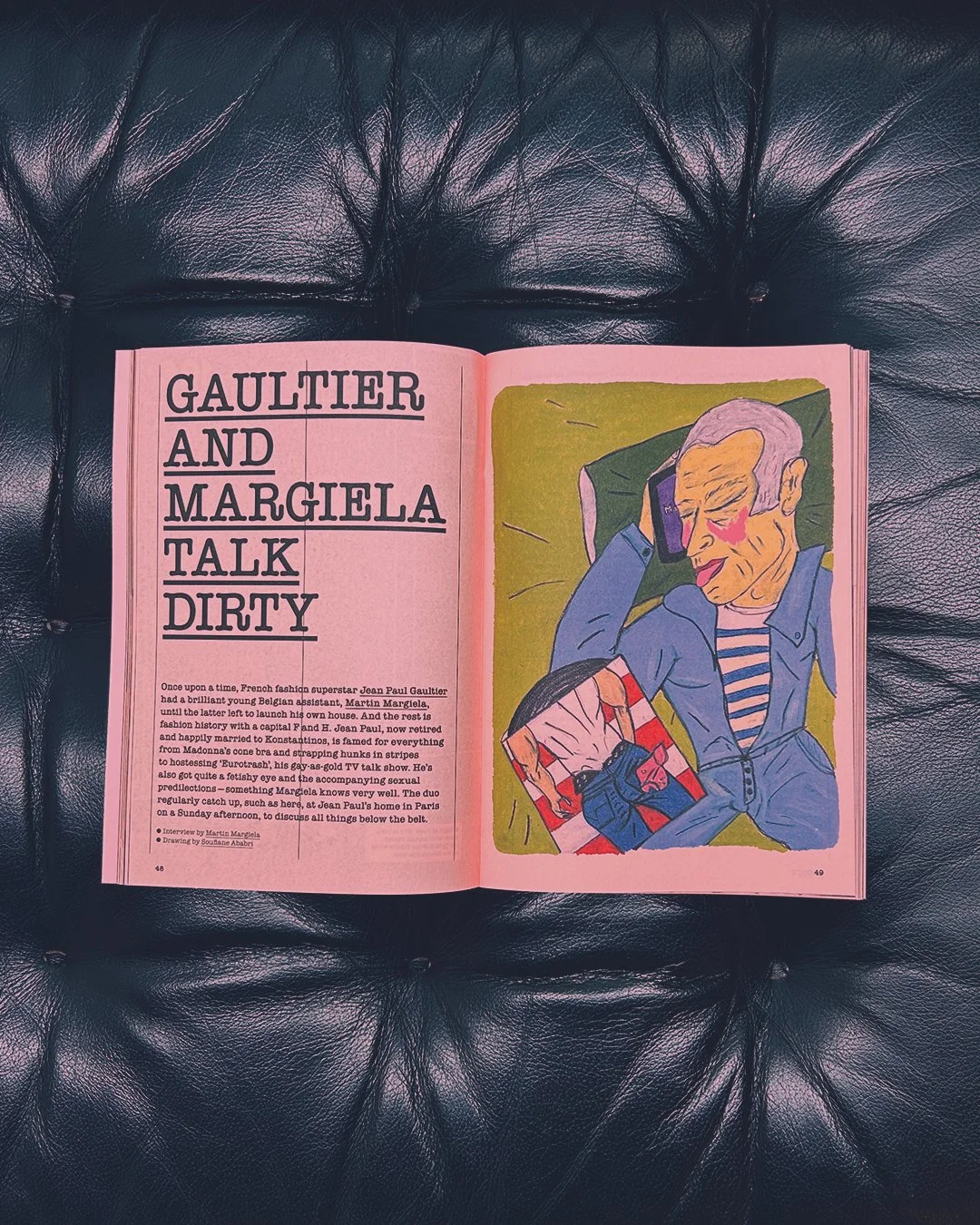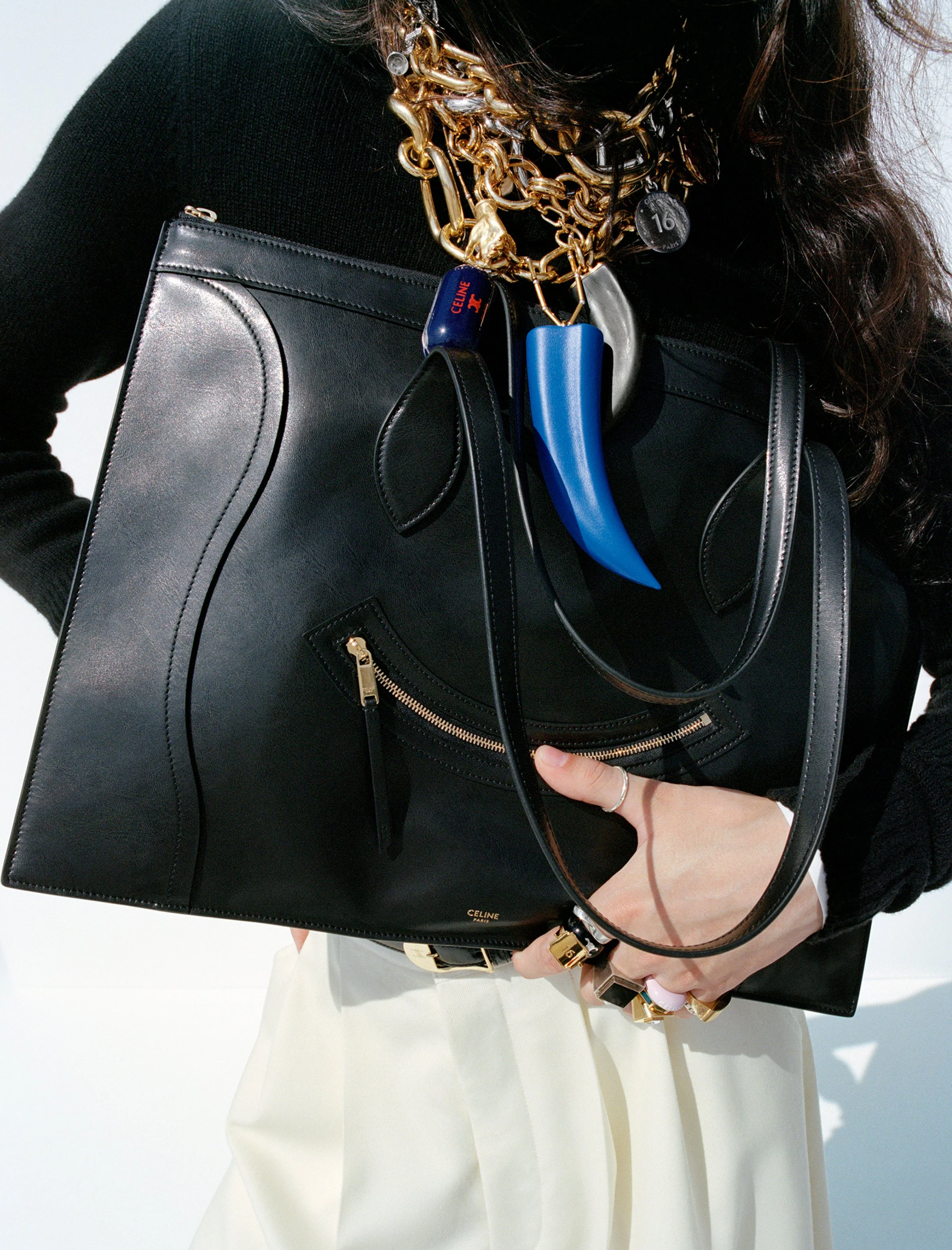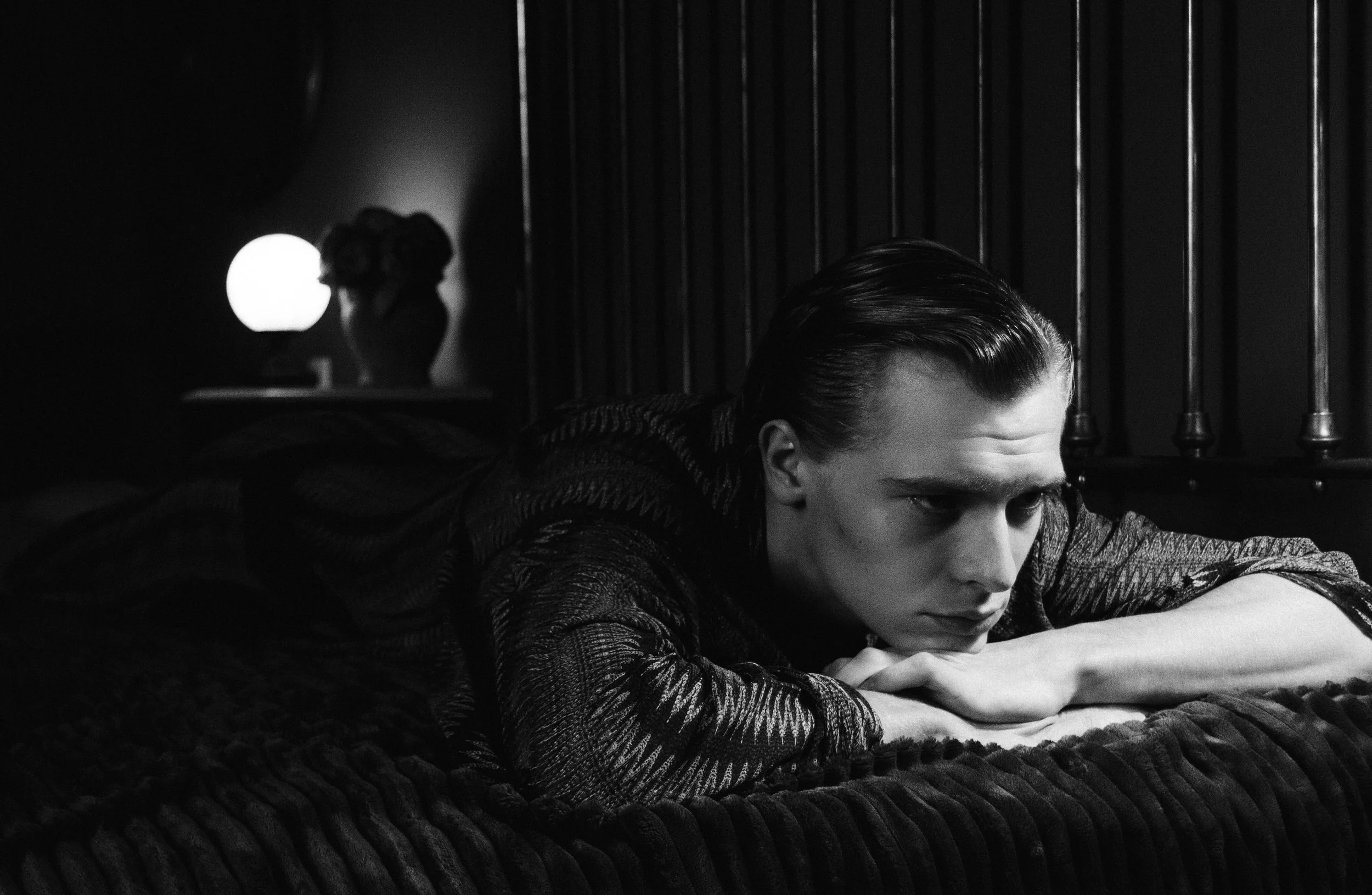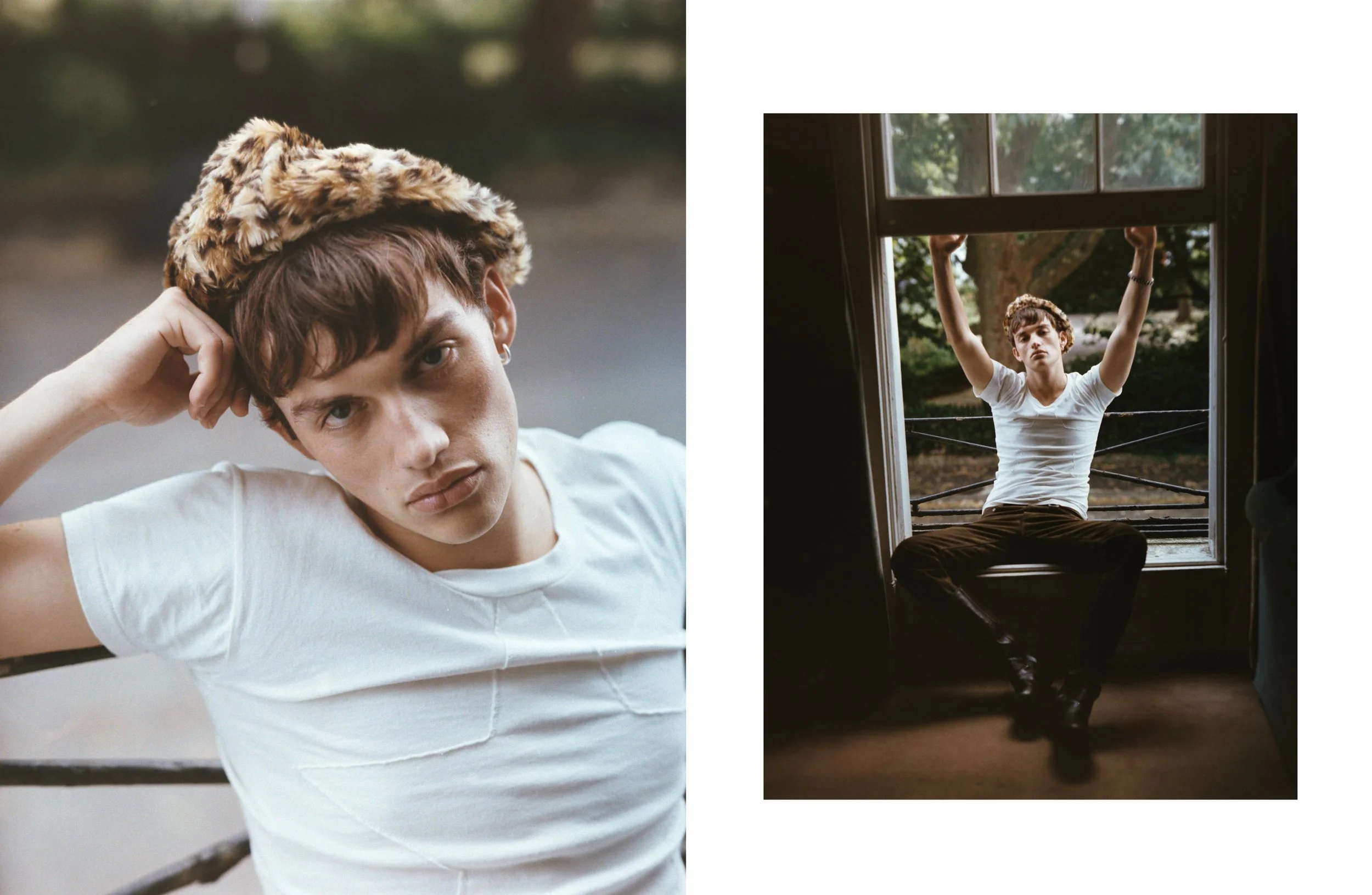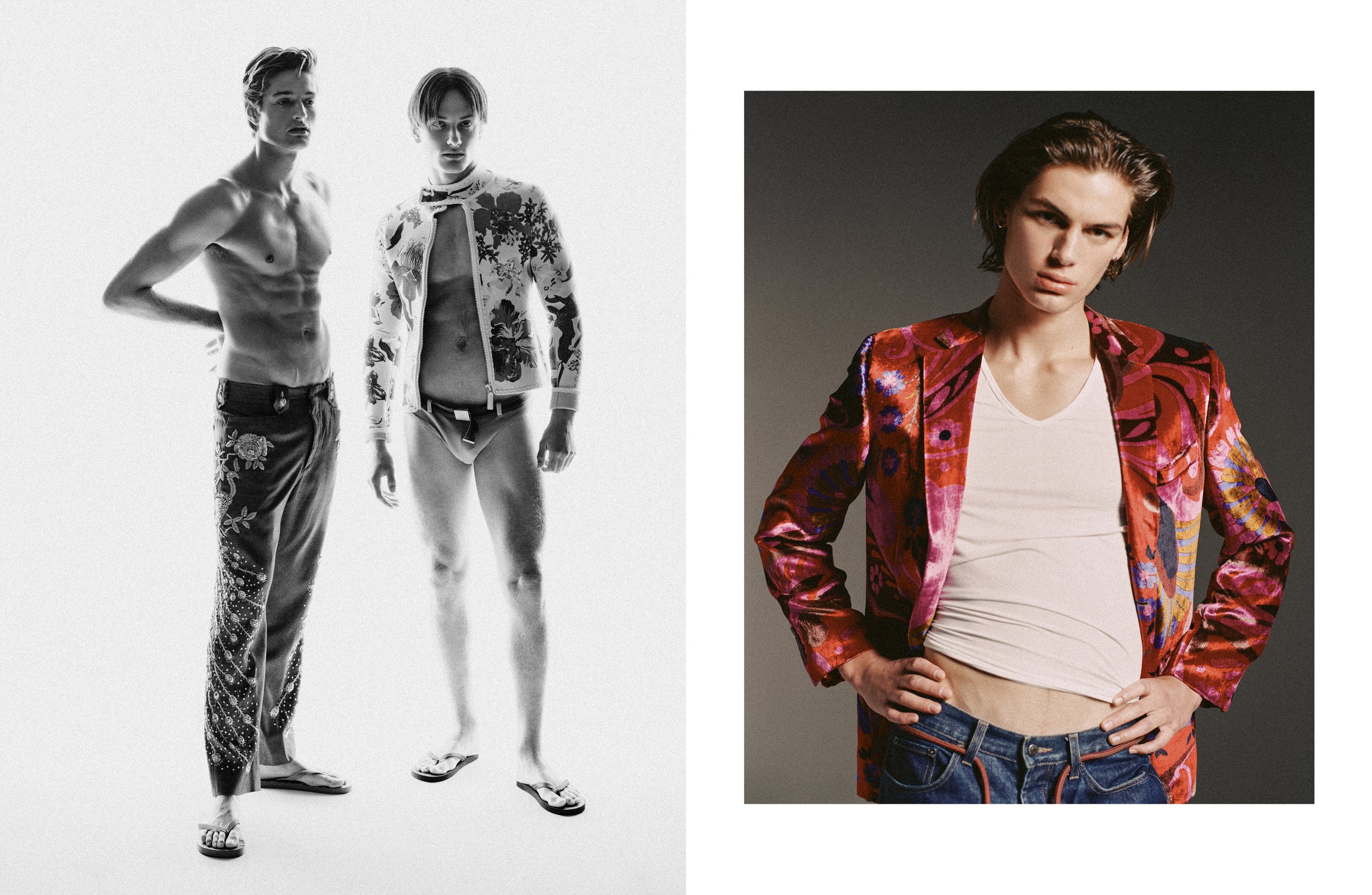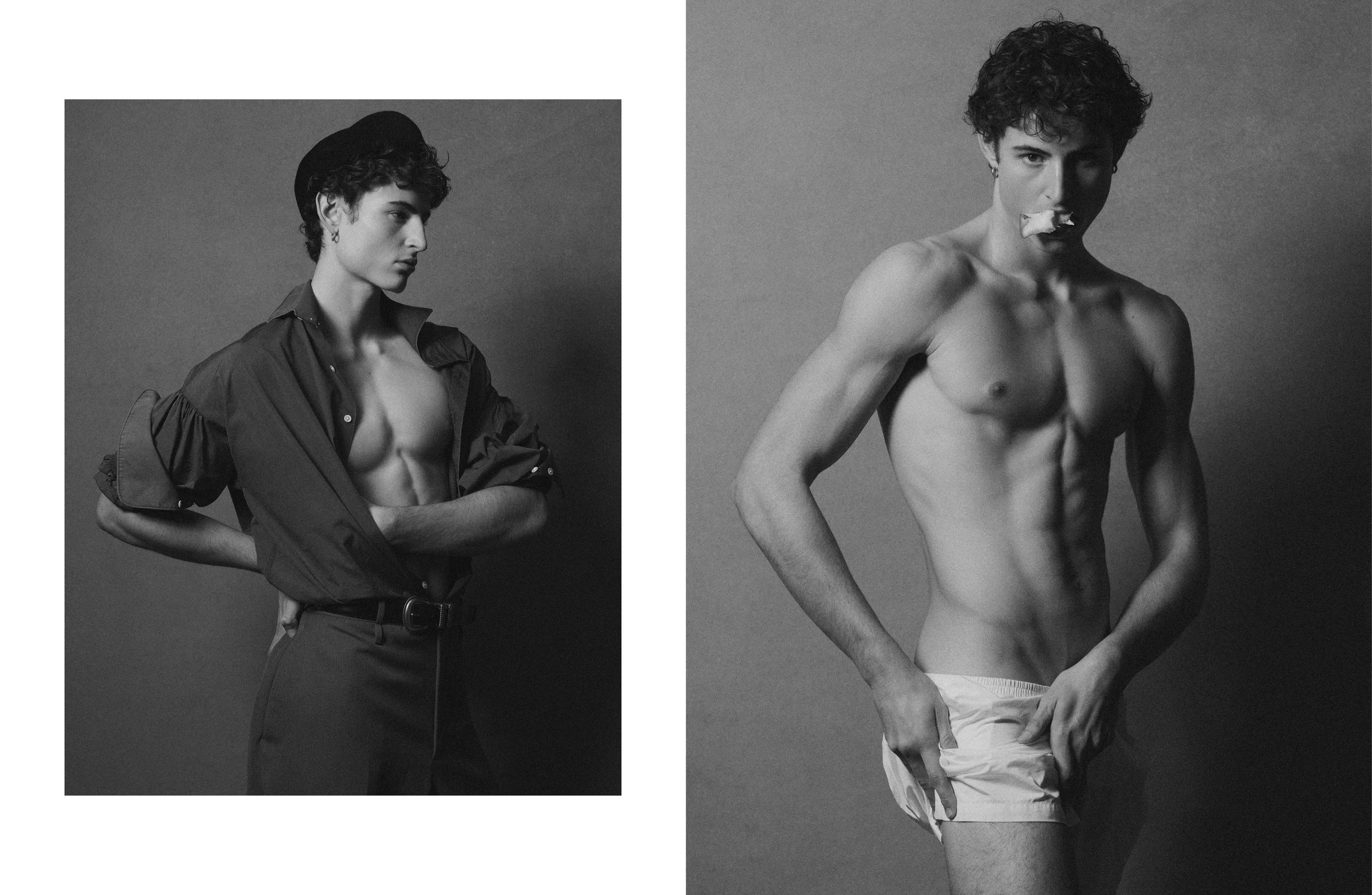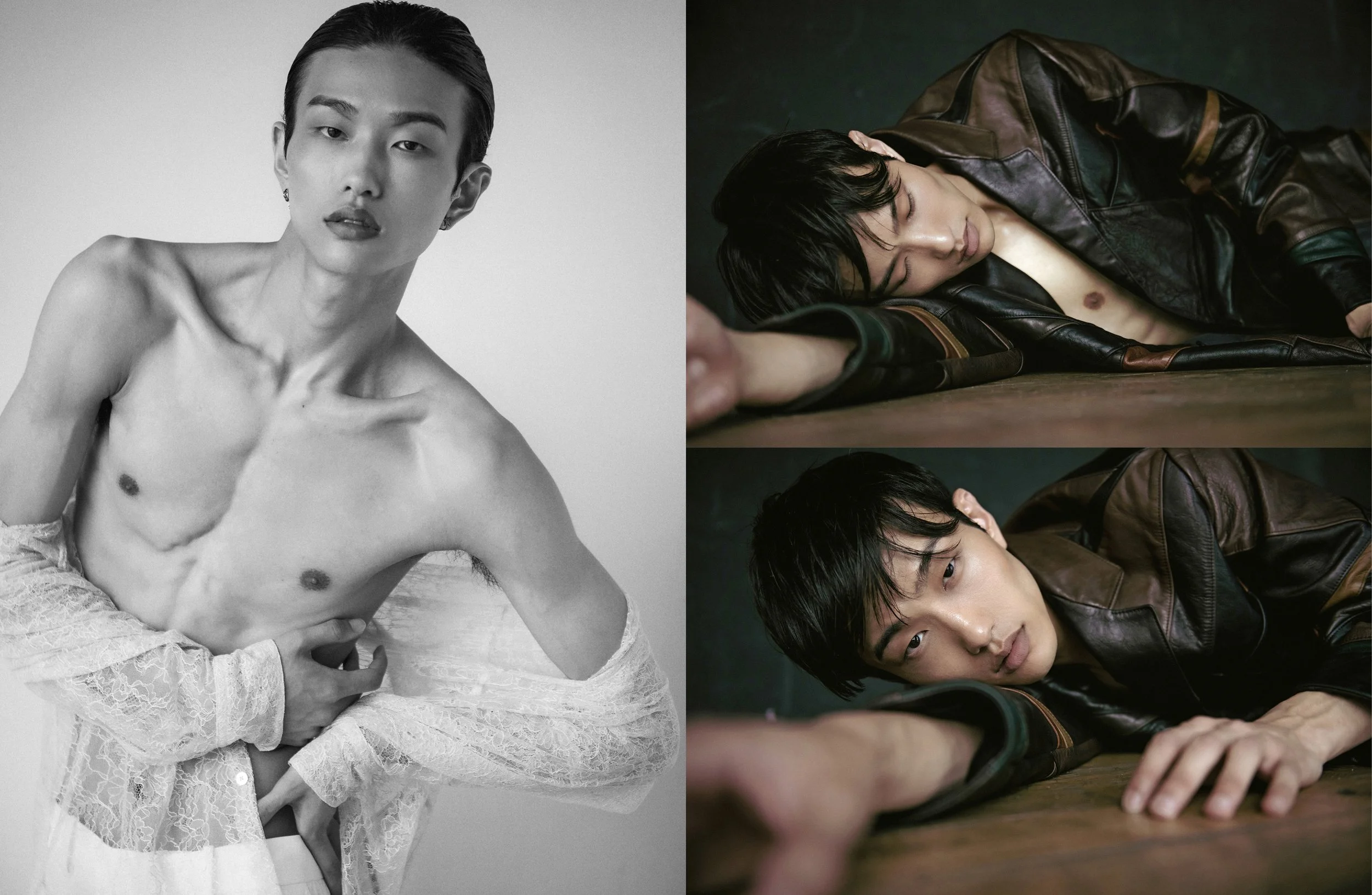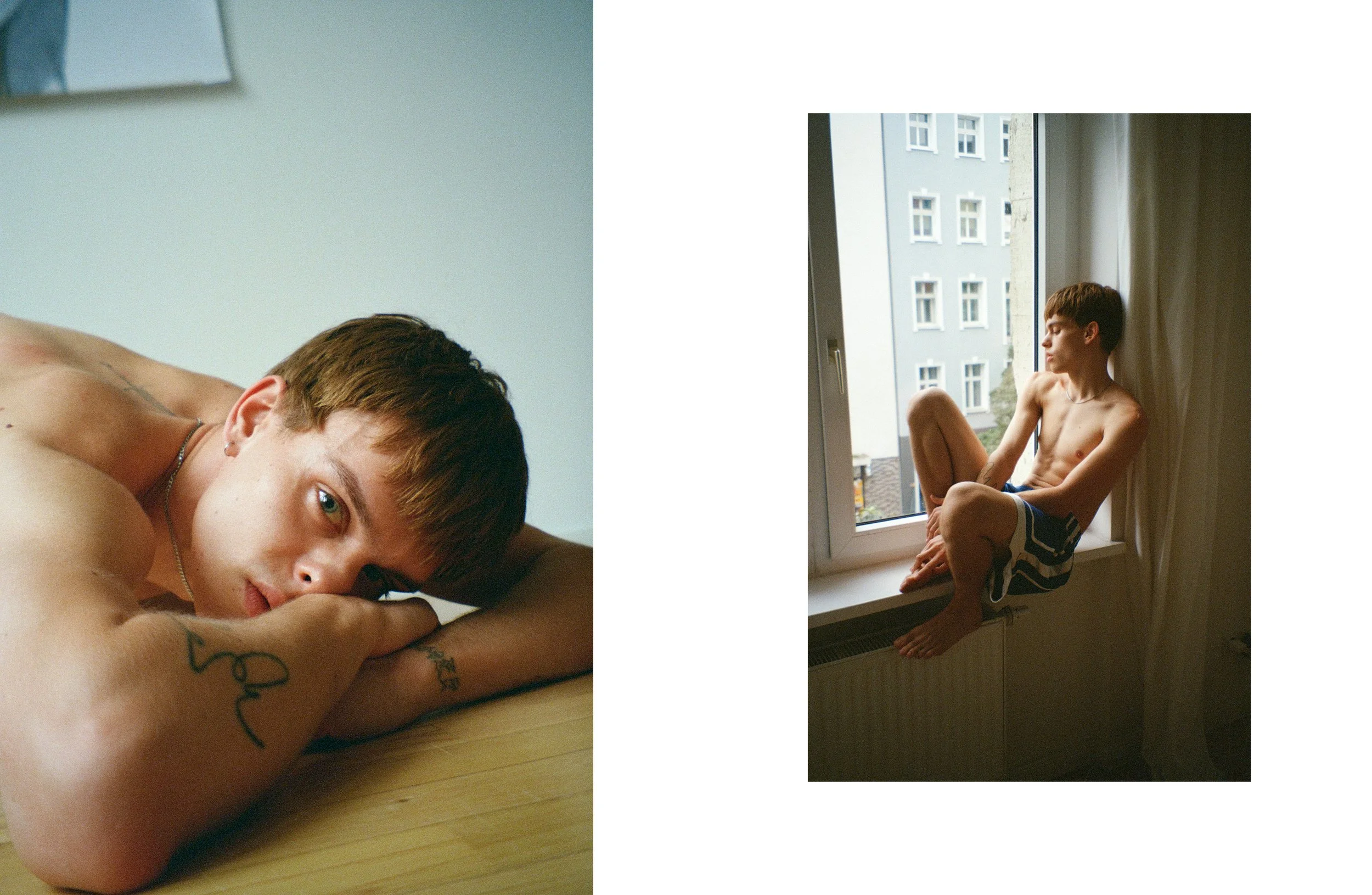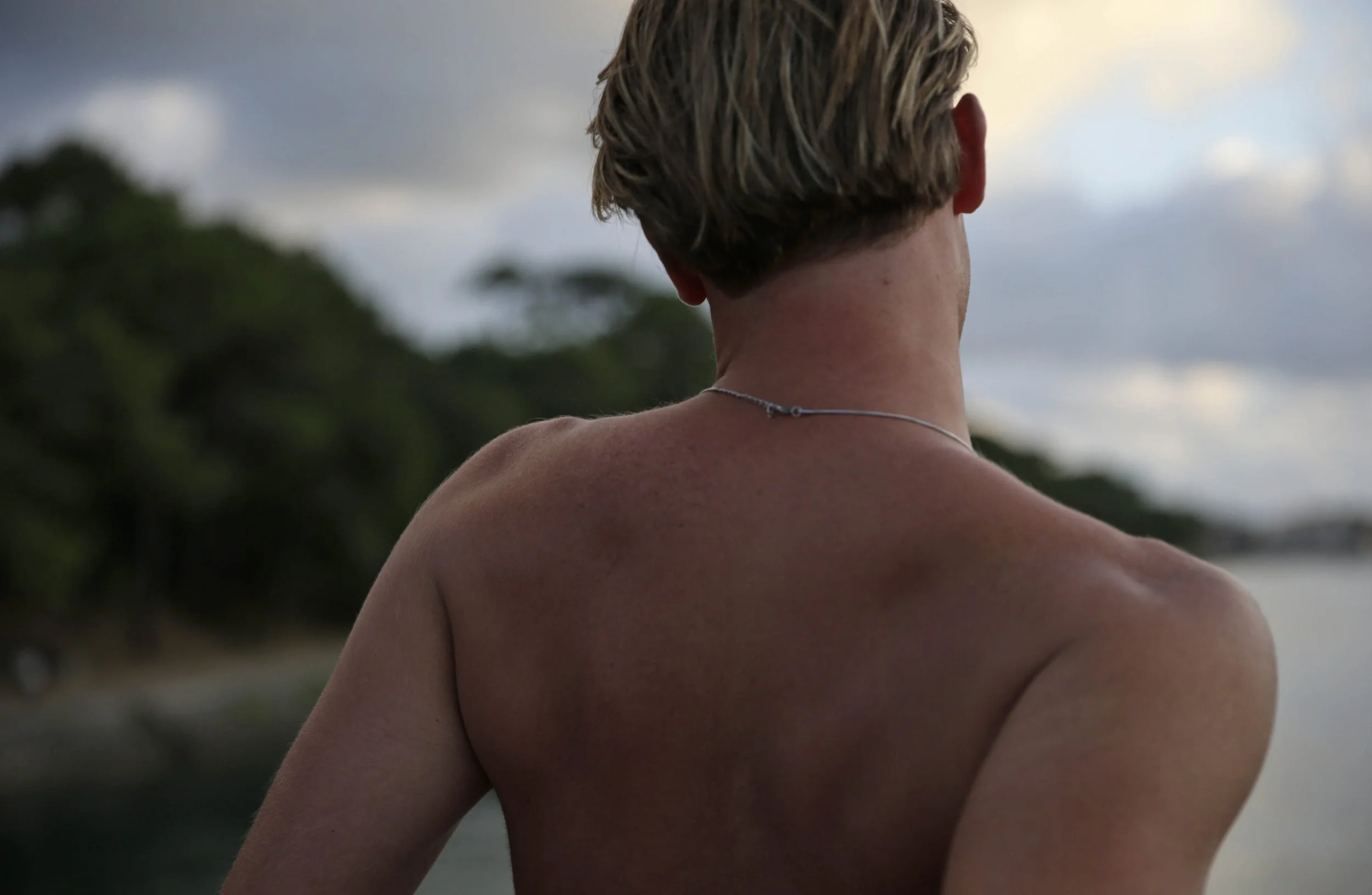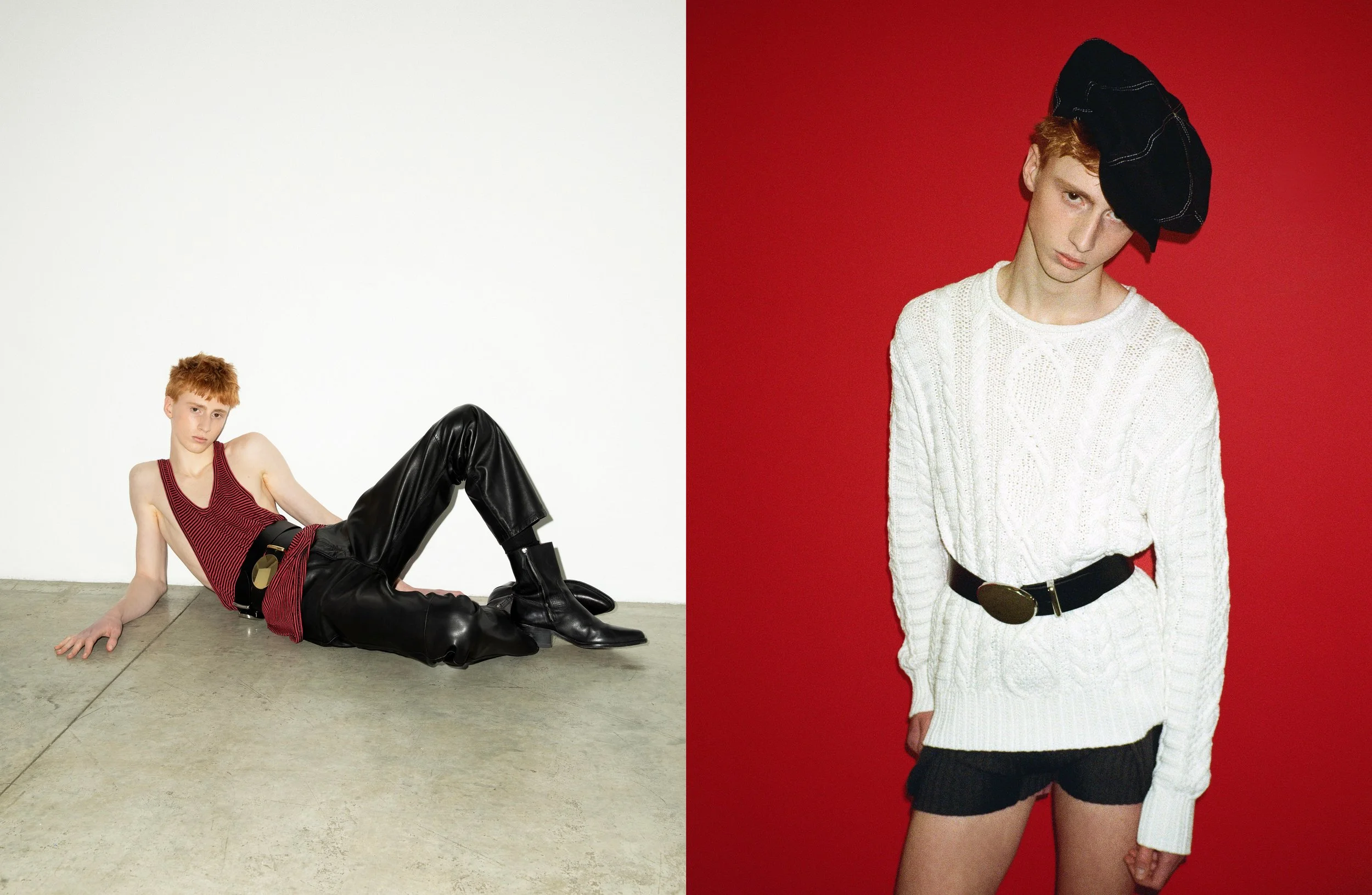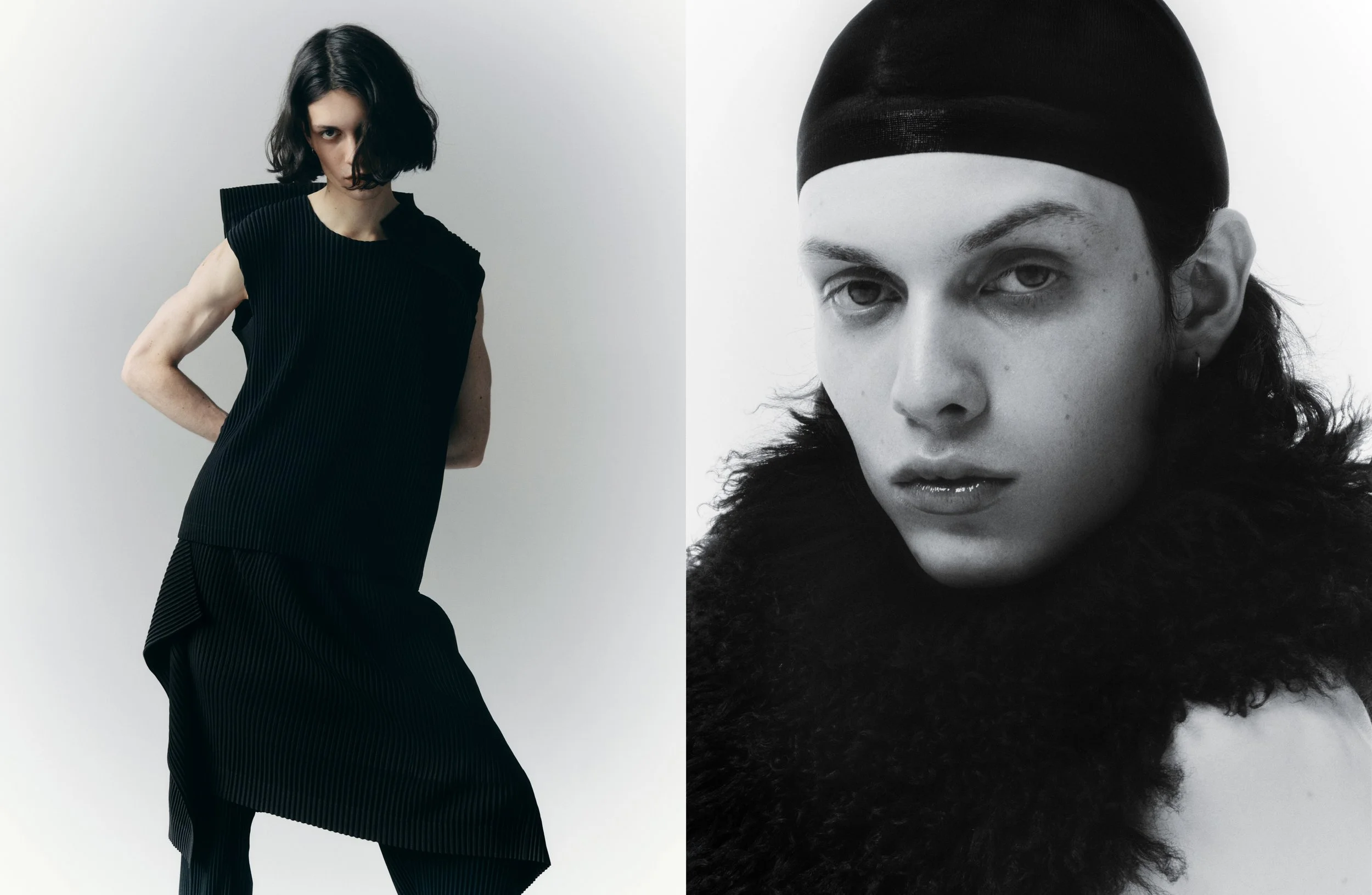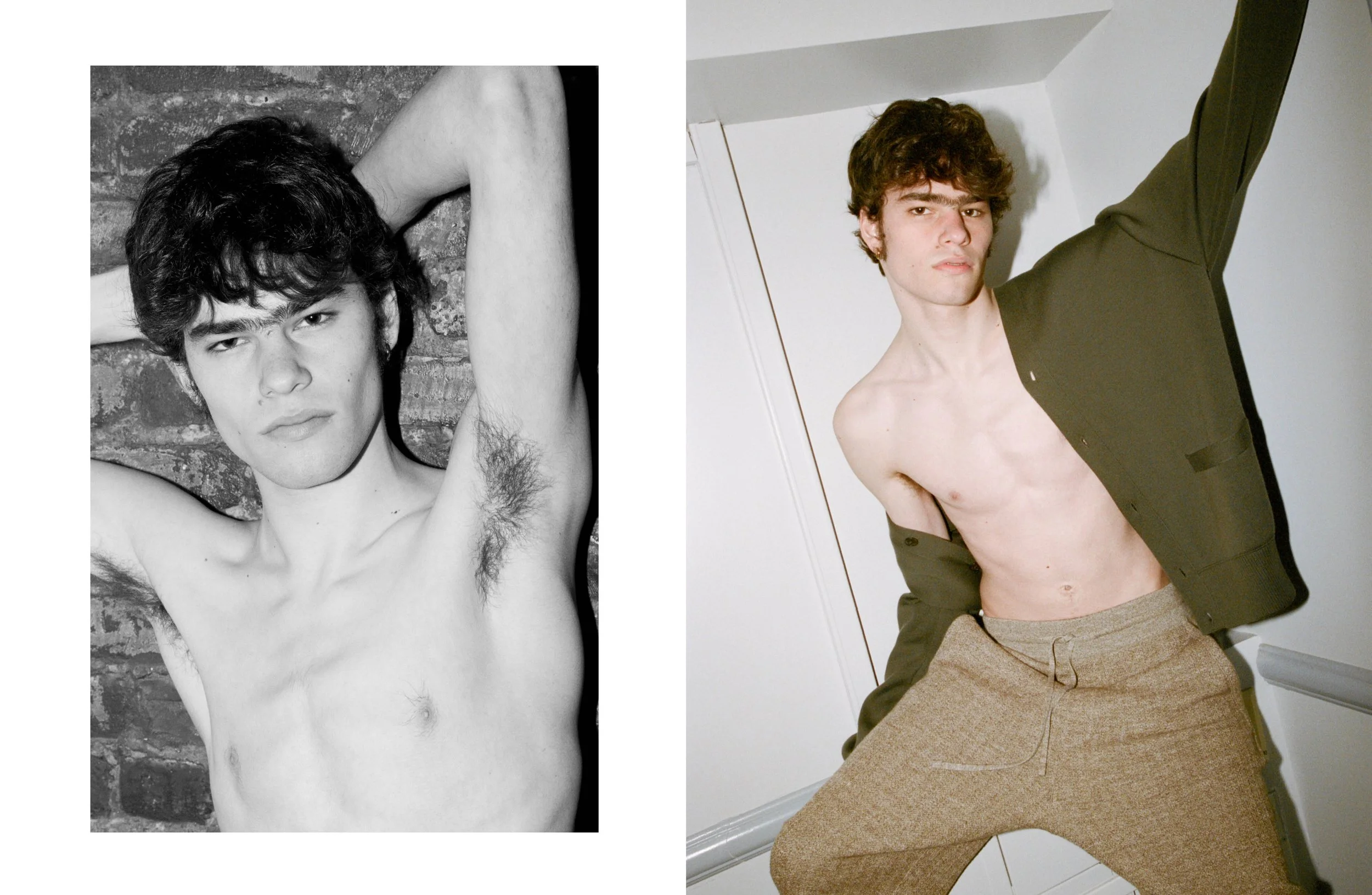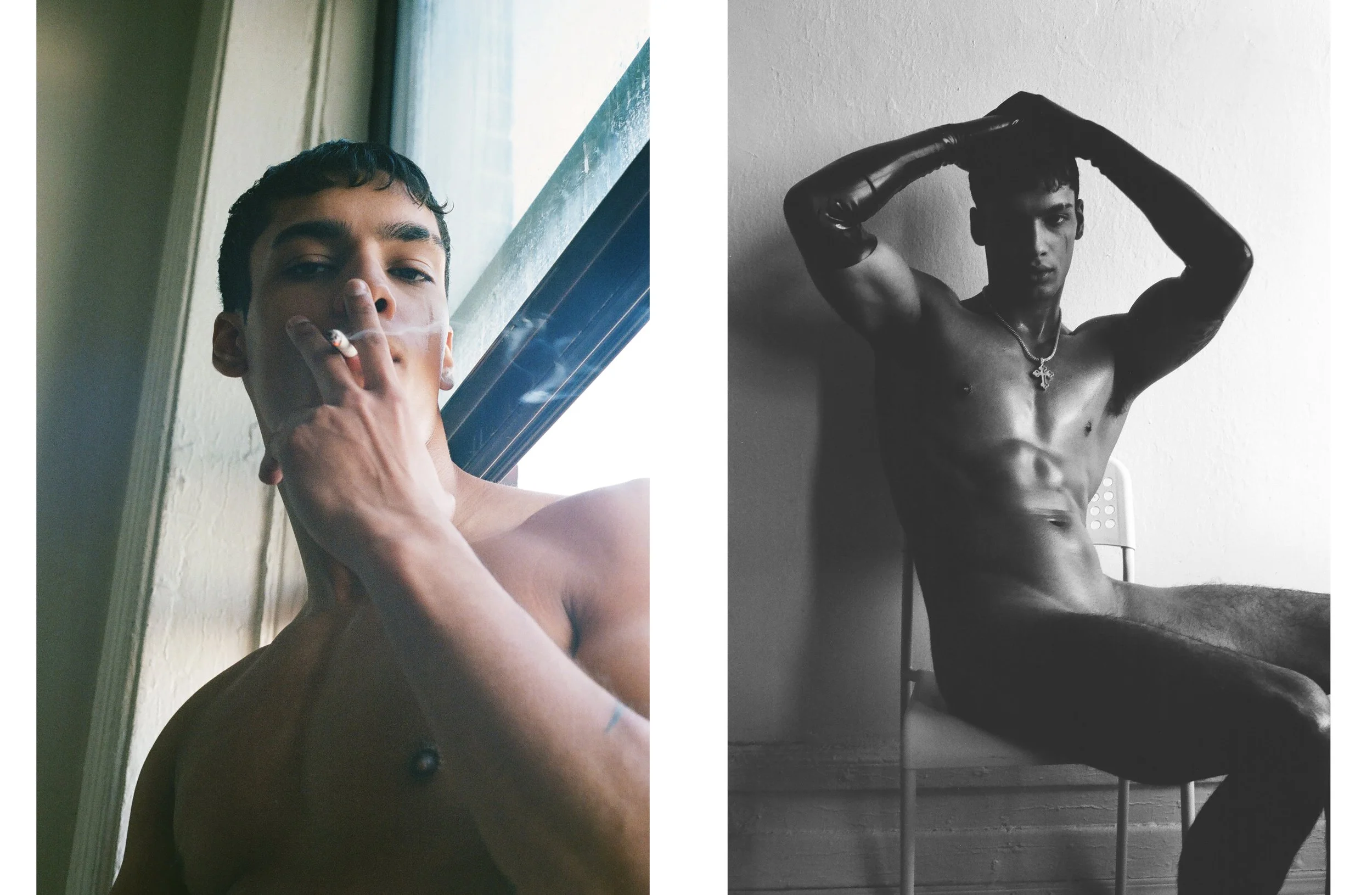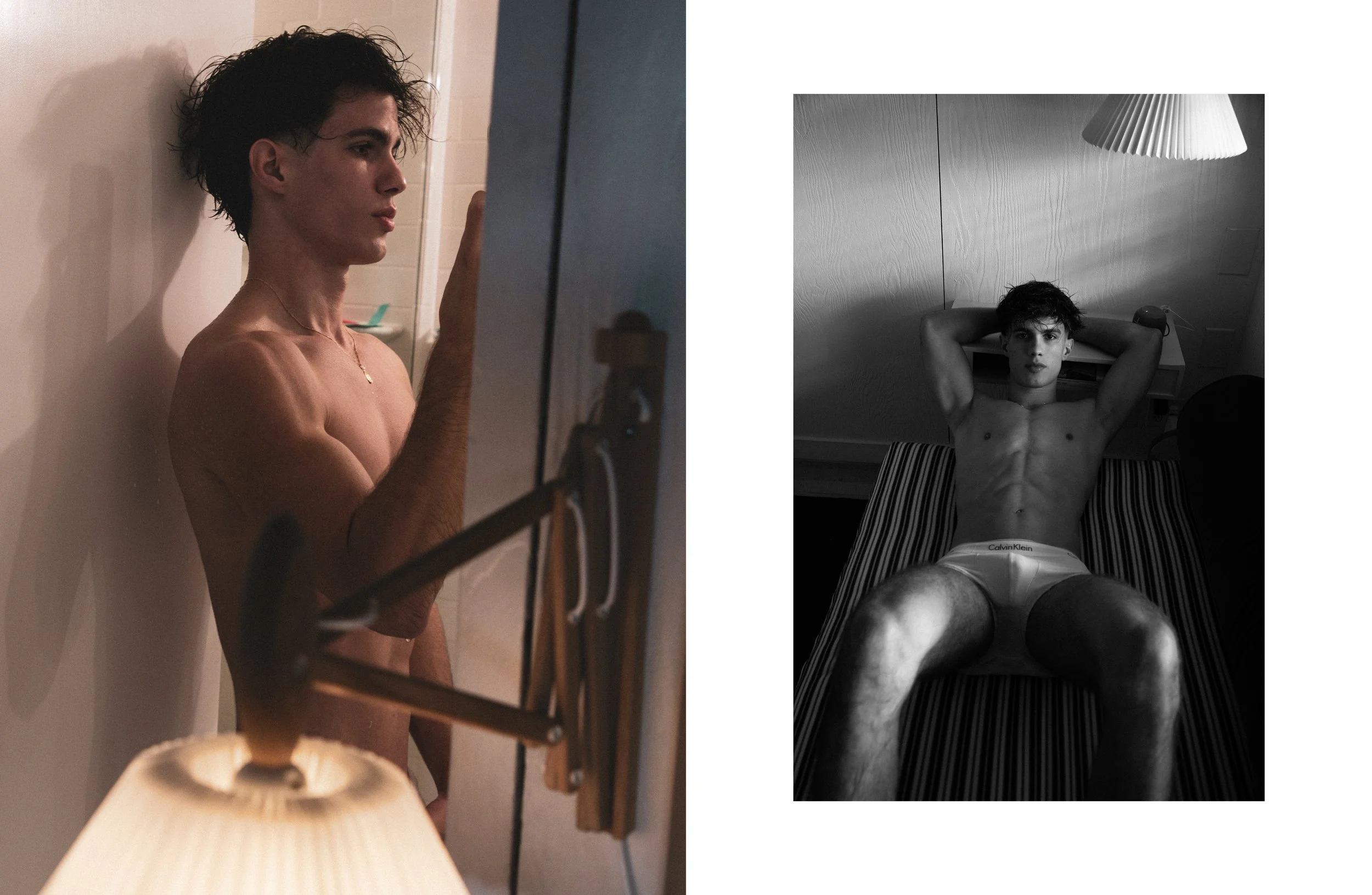JOSHA STRADOWSKI DOESN’T JUST PLAY A CHARACTER, HE IMMERSES HIMSELF SO THAT THE LINES BETWEEN PERSON AND ROLE BLUR. KNOWN FOR PORTRAYING RAND AL'THOR IN THE WHEEL OF TIME, STRADOWSKI HAS DIVED DEEP INTO THE WATERS OF THE HIT SHOW, ESPECIALLY IN THE UPCOMING THIRD SEASON, WHERE THE CHALLENGES GROW—HE’S PLAYING MORE THAN RAND THIS TIME AROUND. THAT’S WHERE STRADOWSKI THRIVES, AT THE EDGE BETWEEN PERFORMANCE AND REALITY. THE PHYSICALLY DEMANDING NATURE OF THE JOB—ENDURING EXTREME TEMPERATURES ON SET, PUSHING THEIR BODY TO ITS LIMITS, AND NAVIGATING THE HIGH STAKES OF A MASSIVE PRODUCTION—HAS SHAPED STRADOWSKI BOTH AS AN ACTOR AND A PERSON. YET, IT’S THE EMOTIONAL INTENSITY OF THE CRAFT THAT LEAVES THE MOST LASTING MARKS.
Hey! Are you based in London?
No, I'm actually moving at the moment. I'm officially based in Amsterdam, but I'm from all over the place. I'm in Cape Town right now.
Where are you moving to?
I want to move to New York, but maybe London.
The weather is awful, much better in Cape Town.
That's why I came back. I was here shooting last year for three months, and I was almost shooting six days a week, so I decided to come back to properly enjoy the country. It's a great place.
How do you usually unwind after a job?
Unwinding is important. It depends on what project you're doing, but when we finished up season three of The Wheel of Time, it was really intense because almost all of my scenes were here in South Africa. I was shooting six days a week, and it was also in February and March – the warmest moment in South Africa. We were shooting on the hottest day in Cape Town in 10 years. Physically, it was also very, very demanding. And this season, I'm playing multiple characters. There was more work and hours involved for me to get into character. After that, I went to Thailand, and I stayed there for two months, and I slowly got back to myself. And it's so intense because you're working every moment of the day—while I was there, there was not one moment where I wasn't working, so it takes some time to get back to yourself.
Do you do any work to protect yourself from the emotions your characters experience, or do you go through it with them and then separate yourself after?
For me, the most interesting place is when there's no difference. Like, for example, last season, there was a moment when my character steps into this arena, and he goes through this situation. It's almost like he's dying. And while we were shooting that, it was 45 degrees Celsius, and we were shooting that scene for about 3–4 days and we did it 30 times a day, from beginning to end. And on that third day, I actually passed out. Because I guess your body doesn't feel the difference between what's real and what's not. So it was really until this season that I started to think more about what you were talking about. And that's why I needed to take some time off. But right at the edge is the most interesting place in acting.
The show has a huge production value. Did you have to adapt when you started working in this kind of production?
Five years ago, when I walked on the set of The Wheel of Time, I couldn't believe how many people were involved. I'm a Dutch actor so when I was shooting films and TV back there, we didn't have stand-ins or doubles. There was no separation between cast and crew, you know, you just get your own coffee. It's not, I don't think the life of an actor on set is very glamorous, at least not on The Wheel of Time. But so, I walked on set, and it felt like theatre, but then in essence, it's the same thing. It's just a camera. Maybe it's a big one, or five [of them]. But you just listen to the other actor, and you respond in a way that you think is the essence of your character. And that's probably what I said to myself a lot because I was so nervous.
Do you think language plays a part in your work as an actor?
I prefer acting in English now, maybe because it's further away from me, so there's already one transformation. Some languages lend themselves better to cinema. I think French is very cinematic in a way. I think English is too.
The Wheel of Time is a fantasy world – how do you tap into emotions or your own experiences to make sure that your portrayal is as honest as possible?
I think what makes The Wheel of Time good to me is the very human relationships. That’s really what drives the story. When I was reading the books, and there are quite a lot of them, what drew me to the project was that.
You mentioned reading the books. Was that before you started the production, or during the auditioning process?
I wasn't aware of The Wheel of Time until the audition came along. While I was auditioning, they didn't share any character names, so I was auditioning for a character I couldn't find online, but it felt very important. Then they called me, and I asked which part I got, and they said Rand. I looked him up, and I was like, okay, there we go. That's when I started reading because there is a huge responsibility there. As an actor, it’s kind of what I was wishing for. You have 14 books of source material, and that’s amazing. For me, that was a dream come true.
Do you feel any pressure to perform well because it's such a beloved piece of work, both the books and the series?
I think season one had a lot of pressure, and I was probably too much in a way. Pressure kills creativity, but I think now, because I know all the material, I feel like I know Rand well. I can kind of let go of everything and just rely on what I know, which is really liberating. For me, that's why I really love season three because we've drawn the lines, and now we can just throw paint at the canvas.
Do you think the pressure to stick to the material is restrictive?
Where it can get in the way is if you become too nerdy about it. There is a scene in the books, then it gets turned into a scene in the script, and we make it into a scene on the day, and then the editors make it into a scene on the screen. When the process is good and collaborative, you end up somewhere you didn’t know you wanted to be. And that’s when it becomes exciting.
Do you feel like playing a character leaves a mark on you as a person?
Sometimes it does, with Rand, for sure. I think you pay a price for that, but it's worth paying. If you look at all the interesting actors and the most interesting characters ever played, it's where you come to life. But it definitely gets into you. It's not for free.
How has Rand left a mark on you after season three?
I don’t think I was able to live a normal life. I was struggling to do normal things again. The things Rand goes through are huge. It's one of the most interesting seasons because previously, Rand was running away from who he is. But now he's ready. He needs to go through a test to prove that he's the Dragon Reborn. That felt like a huge shift for me, mentally and emotionally. The first time Rand can actually own his identity. But for me, it's the most intense process.
You know, something that’s interesting about being an actor is that it’s so much about the craft, but there’s also the whole fame side of it—the audience’s reaction. The Wheel of Time has exposed you to a lot more people than before. How did you adjust to that?
We had a weird couple of years because of COVID and then the strikes. Season three is the first time we’ve had more engagement. The last few years have mostly been online or through a screen. So I’m very excited to engage, have conversations, and meet people. Especially this season—I’m particularly proud of it because I think the show has finally found its form. It’s like the books. When I first read them, the first book inspired me, and the second one was good, but it wasn’t until the third and fourth that I thought, "Oh, this is The Wheel of Time." It’s like a tree that grows, and especially in a TV show, where everything has to come together—different departments working together. I think season three is where everyone stepped up.
What goals do you have for your craft? Are there any directors, writers, or directions you want to explore next?
I love drama. I don’t have a particular genre in mind, but I do love drama, especially darker themes. A little bit of lightness is fine, but not too much.
Interview by Pedro Vasconcelos
Photography by Ritchie Jo Espenilla
